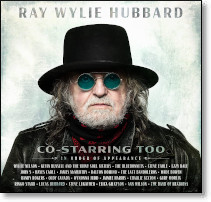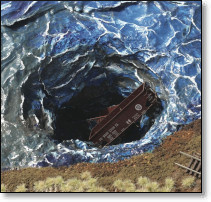Latest
2024
Jul
Jun
May
Apr
Mar
Feb
Jan
2023
Dec
Nov
Oct
Sep
Aug
Jul
Jun
May
Apr
Mar
Feb
Jan
2022
Dec
Nov
Oct
Sep
Aug
Jul
Jun
May
Apr
Mar
Feb
Jan
2021
Dec
Nov
Oct
Sep
Aug
Jul
Jun
May
Apr
Mar
Feb
Jan
2020
Dec
Nov
Oct
Sep
Aug
Jul
Jun
May
Apr
Mar
Feb
Jan
2019
Dec
Nov
Oct
Sep
Aug
Jul
Jun
May
Apr
Mar
Feb
Jan
2018
Dec
Nov
Oct
Sep
Aug
Jul
Jun
May
Apr
Mar
Feb
Jan
2017
Dec
Nov
Oct
Sep
Aug
Jul
Jun
May
Apr
Mar
Feb
Jan
2016
Dec
Nov
Oct
Sep
Aug
Jul
Jun
May
Apr
Mar
Feb
Jan
2015
Dec
Nov
Oct
Sep
Aug
Jul
Jun
May
Apr
Mar
Feb
Jan
2014
Dec
Nov
Oct
Sep
Aug
Jul
Jun
May
Apr
Mar
Feb
Jan
2013
Dec
Nov
Oct
Sep
Aug
Jul
Jun
May
Apr
Mar
Feb
Jan
2012
Dec
Nov
Oct
Sep
Aug
Jul
Jun
May
Apr
Mar
Feb
Jan
2011
Dec
Nov
Oct
Sep
Aug
Jul
Jun
May
Apr
Mar
Feb
Jan
2010
Dec
Nov
Oct
Sep
Aug
Jul
Jun
May
Apr
Mar
Feb
Jan
2009
Dec
Nov
Oct
Sep
Aug
Jul
Jun
May
Apr
Mar
Feb
Jan
2008
Dec
Nov
Oct
Sep
Aug
Jul
Jun
May
Apr
Mar
Feb
Jan
2007
Dec
Nov
Oct
Sep
Aug
Jul
Jun
May
Apr
Mar
Feb
Jan
2006
Dec
Nov
Oct
Sep
Aug
Jul
Jun
May
Apr
Mar
Feb
Jan
2005
Dec
Nov
Oct
Sep
Aug
Jul
Jun
May
Apr
Mar
Feb
Jan
2004
Dec
Nov
Oct
Sep
Aug
Jul
Jun
May
Apr
Mar
Feb
Jan
2003
Dec
Nov
Oct
Sep
Aug
Jul
Jun
May
Apr
Mar
Feb
Jan
2002
Dec
Nov
Oct
Sep
Aug
Jul
Jun
May
Apr
Mar
Feb
Jan
2001
Dec
Oct
Sep
Aug
Jul
Jun
May
Apr
Mar
Feb
Tuesday, March 29, 2022
Daily Log
Memorable tweet(s):
- Skanda Amaranath (Neoliberal Sellout) @IrvingSwisher
The transition from managerial capitalism to shareholder capitalism could be told through a history of how business school education has evolved
Monday, March 28, 2022
Music Week
 |
 |
 |
 |
 |
 |
Expanded blog post, March archive (done).
Tweet: Music Week: 42 albums, 6 A-list, three new picks spread styles and straddle the globe, three old ones from a dive into the South African-influenced English avant-garde.
Music: Current count 37597 [37555] rated (+42), 128 [125] unrated (+3).
Failed to get my Book Roundup post done last week, or even to make any significant headway on it. Instead, I wrote a fitful Speaking of Which, which left me in a very bad mood. I'm not sure I can explain why, or whether I even want to, so let's leave it at that.
Meanwhile, I listened to some records last week, as you can see. For much of the week, I had little trouble deciding what to listen to next. I have a rather limited but functional metacritic file, which urged me to waste time on the likes of Alt-J and Animal Collective (neither as bad as I feared, but with different redeeming merits). I noticed that Best of Jazz has started a New Jazz Releases 2022 page (they cite me in their intro), which led me to identify several prospects. Among the things they pointed me to were Bandcamp reissues from Enja/Yellowbird -- misidentified as new releases. I've also spent a good deal of time on the Ogun Records Bandcamp, which I discovered last week, when I went looking for Blue Notes for Mongezi (and found the even better Blue Notes for Johnny). I expect to continue with Ogun next week. (A quandary there on reissue dates: many are new enough by Bandcamp dates to qualify for this or last year's lists, but I've generally gone with either the original LP date or the most appropriate CD reissue -- hence they're showing up under "Old Music" here.) Other records came from various Facebook EW lists, including Gonora Sounds and Hailey Whitters.
The odd record out in many ways is Nova Twins, a 2020 release (too new for old? too old for new?). I probably noticed it at the time -- barely, it got 10 points in my 2020 EOY Aggregate -- but what brought it to my attention was that the daughter of a friend of a friend of my wife's was in it, a good old word-of-mouth grapevine. Not something I expect to go back to often, but exemplary in a fairly unique way, enough so I gave it the benefit of the grade.
The March, 2022 Streamnotes file (link above) is wrapped up (except for the Music Week excerpts), with 169 records (123 new music, 109 of them 2022 releases).
New records reviewed this week:
- Alt-J: The Dream (2022, Infectious Music): [r]: B
- Animal Collective: Time Skiffs (2022, Domino): [r]: B
- Steven Bernstein's MTO Feat. Catherine Russell: Good Time Music (Community Music Vol. 2) (2022, Royal Potato Family): [bc]: B+(***)
- Black Flower: Magma (2022, Sdban Ultra): [sp]: B+(***)
- Black Lives: From Generation to Generation (2021 [2022], Jammin' Colors, 2CD): [cd]: B+(**)
- Stephan Crump: Rocket Love (2020-21 [2022], Papillon Sounds): [r]: B+(**)
- James Gaiters Soul Revival: Understanding Reimagined (2021 [2022], self-released): [cd]: B+(***)
- Dave Gisler Trio With Jaimie Branch and David Murray: See You Out There (2021 [2022], Intakt): [sp]: B+(**)
- Gonora Sounds: Hard Times Never Kill (2022, The Vital Record): [r]: A
- Joy Guidry: Radical Acceptance (2022, Whited Sepulchre): [r]: B+(**)
- Michael Leonhart Orchestra: The Normyn Suites (2019-21 [2022], Sunnyside): [cd]: B+(***)
- Rudresh Mahanthappa: Animal Crossing EP (2022, Whirlwind, EP): [bc]: B+(**)
- Vic Mensa: Vino Valentino (2022, Roc Nation, EP): [r]: B+(*)
- Tony Monaco: Four Brothers (2022, Chicken Coup): [cd]: B+(***)
- Sean Nelson's New London Big Band: Social Hour! (2019 [2022], MAMA): [cd]: B
- Nova Twins: Who Are the Girls? (2020, 333 Wreckords Crew): [r]: A-
- Ocean Child: Songs of Yoko Ono (2022, Canvasback): [r]: B+(*)
- Punkt. Vrt. Plastik: Zurich Concert (2021 [2022], Intakt): [r]: B+(***)
- Cécile McLorin Salvant: Ghost Song (2022, Nonesuch): [r]: B+(**)
- Lisa Ullén/Elsa Bergman/Anna Lund: Space (2021 [2022], Relative Pitch): [r]: B+(***)
- Hailey Whitters: Raised (2022, Big Loud/Pigasus): [r]: A-
- Yung Kayo: DFTK (2022, Sevensevenseven/YSL): [r]: B+(**)
Recent reissues, compilations, and vault discoveries:
- Rabih Abou-Khalil: The Flood and the Fate of the Fish (2017-18 [2019], Enja): [bc]: B+(**)
Old music:
- The Blue Notes: Legacy: Live in South Afrika 1964 (1964 [1995], Ogun): [bc]: B+(***)
- Lol Coxhill: Coxhill on Ogun (1977-78 [1998], Ogun): [bc]: B+(***)
- EDQ [Elton Dean Quartet]: They All Be on This Old Road (1977, Ogun): [bc]: A-
- Elton Dean's Ninsense: Happy Daze + Oh! For the Edge (1976-77 [2009], Ogun): [bc]: B+(***)
- Elton Dean: Elton Dean's Unlimited Saxophone Company (1989 [1990], Ogun): [bc]: B+(***)
- Dusko Goykovich: Swinging Macedonia (1966 [1983], Enja): [bc]: B+(**)
- Louis Moholo Octet: Spirits Rejoice! (1978, Ogun): [bc]: B+(***)
- Louis Moholo-Moholo/Dudu Pukwana/Johnny Dyani With Rev. Frank Wright: Spiritual Knowledge and Grace (1979 [2004], Ogun): [bc]: B+(**)
- Louis Moholo's Viva-La-Black: Exile (1990-91 [1991], Ogun): [bc]: B+(**)
- Louis Moholo's Viva-La-Black: Freedom Tour: Live in South Afrika 1993 (1993 [1994], Ogun): [bc]: B+(***)
- Louis Moholo-Moholo Quartet: 4 Blokes (2013 [2014], Ogun): [bc]: B+(***)
- Mike Osborne Trio: All Night Long: The Willisau Concert (1975 [2012], Ogun): [bc]: A-
- Mike Osborne Trio/Quintet: Border Crossing/Marcel's Muse (1974-77 [2004], Ogun): [bc]: A-
- Alan Skidmore/Mike Osborne/John Surman: S.O.S. (1975, Ogun): [bc]: B+(**)
- John Stevens/Evan Parker: Corner to Corner + The Longest Night (1977-93 [2007], Ogun, 2CD): [bc]: B+(**)
- Aki Takase: St. Louis Blues (2001 [2020], Enja): [bc]: B+(**)
- Keith Tippett/Julie Tippetts/Harry Miller/Frank Perry: Ovary Lodge (1975 [1976], Ogun): [bc]: B
Unpacking: Found in the mail last week:
- Martin Bejerano: #Cubanamerican (Figgland) [05-27]
- Will Bernard: Pond Life (Dreck to Disk) [05-27]
- Jean Fineberg: & Jazzphoria (Pivotal) [04-08]
- Stephen Philip Harvey Jazz Orchestra: Smash! (Next Level) [06-17]
- Charles Mingus: The Lost Album: From Ronnie Scott's (1972, Resonance, 3CD) [04-29]
- Yu Nishiyama: A Lotus in the Mud (Next Level) [05-20]
- Keith Oxman: This One's for Joey (Capri) [04-15]
- Fabian Willmann Trio: Balance (CYH) [04-15]
Sunday, March 27, 2022
Speaking of Which
Tweet: Speaking of Which: The war in Ukraine drags on, and lots of other sad sories.
I started this a couple days ago, with a few piece I wanted to point out, and (as usual) it grew and grew, without ever feeling like I was getting the whole story straight. Rather, a lot of things that have been bugging me. Gradually, I grew disgusted with the whole project, and decided to arbitrarily cut it off, post what I had, and forget about it. Then I found more shit to include, but the cutoff is still pretty arbitrary.
Memorable tweets:
- ryan cooper: Republicans keep getting more and more deranged and Democrats keep thinking that if they hide under the bed it will all go away.
- Matt Blair: The funniest thing about Ted Cruz yelling "Do you know who I am?" at the airport is the very idea that the average person would treat him better after learning that he is Ted Cruz.
The week's top story remains the war in Ukraine:
[03-18] Zack Beauchamp: Is Russia losing? The maps have been relatively stable for a couple weeks, even as the amount of rubble (and dead bodies) around the stalled lines has grown steadily. Beauchamp talks to Olga Oliker about morale, which seems to be very low on the Russian side, and impressive on the Ukrainian.
[03-20] Eric Levitz: The Left Has Half-Baked Answers on Ukraine: This occurred the same day as a Jonathan Chait rant about the Left's views on education, so I wonder what was in the coffee that morning. As I've pointed out many times, the left-right divide is over the question of equality, which mostly means politics but isn't far removed from economics, and doesn't include any number of other issues, which don't cleanly divide along left-right lines. So I'm a little chafed at arbitrarily singling out "the Left" for views that are more blurred. Then there's the added innuendo of "Many on the American left were ideologically unprepared for Putin's invasion," and "When reality turned against left-wing orthodoxy, some leftists turned against reality." I would grant that leftists have certain precepts that help frame our understanding of events, but "ideology" is a straitjacket, and "orthodoxy" is quite explicitly a right-wing concept, while "many" and "some" are weasel words. Same could be said about the right, or any other segment you might are to carve out. (Try replacing "Left" in those subheds with "Trump" or "Tucker Carlson.") On the other hand, anti-war people (both on the left and on the libertarian right) have been quick to identify how US indifference to Russia during the "shock treatment" phase, NATO expansion, the proliferation of sanctions, and the new arms race have contributed to conditions where Putin has acted out so badly. The real test has never been whether you're up to fight when someone gives you no choice, but whether you could have found a way to avoid that fight ever coming. PS: For a response to Levitz, see Branko Marcetic: What the Left's Critics Ignore About Military Solutions to Ukraine.
[03-20] Masha Gessen: The Russians fleeing Putin's wartime crackdown. I'm not sure they count as refugees, but most wars are fought on two fronts: one abroad against supposed enemies, and one at home against dissenters. Putin is struggling in Ukraine, but he still seems to have the upper hand against his own people. Fleeing is one form of resistance, especially where there are few alternatives.
[03-21] William J Astore: Russia invasion is a boon for the post-GWOT war machine. One of those stories that's so obvious it hardly needs mentioning, but so important it cannot be ignored. Donald Trump only understood one thing about NATO: it's basically an arms buying club, where the prime arms merchant is the US. (He didn't buy into the ostensible excuse, that it provides collective defense against Russia, because he regarded Russia not as a threat but as a handful of rich suckers willing to buy into his real estate scam.) So he tried to do the arms industry a solid and shake down Europe to buy more fear, and he did a really lousy job of it (not unlike he does a really lousy job of everything). However, Putin's invasion is driving the rest of Europe into buying American -- even Germany is promising 2% of GDP for "defense." This may seem to make sense given the fear and outrage most of us feel over Putin's attack on Ukraine, but in the long run it is likely to do more harm than good. Weapons and armies legitimize themselves, leading to arms races, and eventually to use. One of the founding lies of the post-WWII era is the notion that strength is necessary to preserve peace. What we need after the war is the realization that war was horrible for all sides, and that the only future lies in incremental disarmament, normalization of relations, and respect for other nations' wishes. Eventually that means no NATO, and no sanctions. Because after this war no one can honestly say that they kept us safe.
[03-24] Day 5, Day 9, Day 16: Responses to the Invasion of Ukraine: Various comments by London Review of Books writers. Pankaj Mishra isn't one to mince words:
As Russian troops attacked a nuclear reactor, George Packer wrote in the Atlantic that 'for the first time in decades, an American president is showing that he, and only he, can lead the free world.' The New York Times exulted over the new-found resolve of the free world: 'Nato has been revitalised, the United States has reclaimed a mantle of leadership that some feared had vanished in Iraq and Afghanistan.' Boris Johnson claimed that he had never seen such a stark 'dividing line between right and wrong.' More remarkably, Hillary Clinton called on MSNBC for a rerun in Ukraine of the 'very motivated' and 'armed insurgency' that 'basically drove the Russians out of Afghanistan.'
[03-24] Sean Illing: How Putin became the victim of his own lies: Interview with Brian Klaas, a University College London professor and author of Corruptible: Who Gets Power and How It Changes Us. I wasn't going to bother with this standard critique of the tendency of autocrats to surround themselves with "yes men" (he calls it "the dictator trap," but the same affliction is common regardless of how one rose to power, or whatever checks and balances constrain it). But the pull quotes are worth noting: "The longer people are in positions of power, the more they start to believe that they can control outcomes that they can't actually control." I think it's more like they lose their fear of things they poorly understand. The other one: "When a significant chunk of people in your society no longer inhabit reality, you're in trouble." Not sure why he switched to "society" here, but it rings all the more true about America.
[03-24] Sophie Pinkham/Nick Mulder: Why Did Putin Decide to Invade Ukraine? Fairly long and wide-ranging interview -- Pinkham wrote Black Square: Adventures in Post-Soviet Ukraine, and Mulder wrote The Economic Weapon: The Rise of Sanctions as a Tool of Modern War -- not that it answers the title question definitively.
[03-25] Patrick Cockburn: Ukraine Could Turn Into Another Endless War, Especially if NATO Decides More Than Just Peace Is Needed. I think most people assume that the war must end soon, because the consequences and risks are already so severe it's hard to contemplate what more might happen. On the other hand, it's not unusual for recent wars to slog on, especially where decisions are being made far from the conflict. Moscow and Washington may well decide that suffering in Ukraine is a tolerable price compared to backing away from their symbolic game (the biggest beneficiary so far is NATO and its arms cartel). Before the war, Zelensky was becoming more ambitious at recovering Donbas and even Crimea, and is likely feeling an adrenaline rush over inflicting surprising losses on Russia, which could encourage him to hold out. Meanwhile the country is being destroyed, and millions of refugees have fled. At some point, one would expect concern over the long-term business losses, which are likely to be huge on both sides, would overcome the interests of the short-term winners (mostly arms merchants and oil companies thus far), and start to pressure both sides to compromise -- but the short-termers have the inside political track. On negotiation considerations, consider [03-25] Matthew Stevenson: Putin Is Not Dealin', which also offers some insight into why Biden and Zelinsky aren't dealin' either.
[03-25] Benjamin Wallace-Wells: The Biden official who pierced Putin's "sanction-proof" economy: The maps and damage surveys make it relatively easy to assess Russia's invasion, although the human suffering is hard to quantify, and what few stats are available are far from reliable. But the effect of the economic war is even harder to get a handle on. (Sure, there are lots of press releases, but what do they really mean?) This article helps a bit in explaining how the sanctions are designed, and what their intended targets are. Still, they're likely to play out slowly, and the lack of good metrics means they could miss their target entirely. We're running an experiment here, one that has almost never worked in the past, hoping once more that louder will make the difference.
[03-26] Michael D Shear/Zolan Kanno-Youngs: Biden denounces Russian invasion, casting it as part of a decades-long attempt to crush democracies: On Biden's big speech in Warsaw, an ideal stage for political posturing and a little sabre-rattling. One thing we cannot credit Biden with is a historically nuanced understanding of the complexities of international relations. His slip-up assertion that Putin cannot remain in power got walked back quick enough: one should understand that it's only Russia's business who their leaders are, and that it's wholly improper for Biden (or any prominent American leader) to interject an opinion (which could easily be misconstrued as a threat, or even an ultimatum -- as Obama did regarding Assad in Syria, one of his biggest blunders as president). I even think that the whole portrayal of Putin as the nemesis of democracy is overwrought. He clearly isn't a big believer, least of all for his own people, but it's hard to see his foreign policy as directed at opposing an idea (or ideal) -- as Bush, for instance, took aim at "terror." On the other hand, as Democrats have been backed into a corner where they're our only hope of defending democracy at home, maybe they're entitled to pose as defenders of democracy abroad.
[03-27] Greg Jaffe/Dan Lamothe: Russia's failures in Ukraine imbue Pentagon with newfound confidence: More evidence that we're unlikely to learn anything from Russia's debacle in Ukraine. "One month into Russia's invasion of Ukraine, senior Pentagon officials are brimming with newfound confidence in American power, spurred by the surprising effectiveness of US-backed Ukrainian forces, Russia's heavy battlefield losses and the cautionary lessons they believe China is taking from the war." So they think US backing makes the difference? Have they already forgotten that the US, with all of its advantages in tech and logistics and morale (at least compared to Russia), wasn't able to hold Afghanistan (or Vietnam). Maybe, as Jonathan Schell put it, the world has become unconquerable? One hopes Russia will learn that lesson. One doubts the US, with its narcissistic doctrine of exceptionalism, ever will.
Other stories of note:
[03-14] Jill Lepore: Why the school wars still rage: "From evolution to anti-racism, parents and progressives have clashed for a century over who gets to tell our origin stories." Starts with the Scopes Trial, which I most likely learned about in Robert Wine's 8th Grade American History class: seems like I learned everything there, as he was one of the very few teachers I had who made learning fun, and was so successful at it (his secret was open-book tests where 3-4 students could share resources) that nearly everyone got an A. His kind of teaching was rare in Wichita (or anywhere else) in the 1960s (or any other time), but then was a time when the Scopes Trial was remembered as a case where reason triumphed over dogma, one small step toward becoming a more enlightened and progressive nation. We seem to have lost ground since then, although there have always been people who saw schooling as useful for indoctrinating children in conservative virtues, and they've often had the upper hand. Much of the Republican campaign agenda is devoted to thought control, of all ages but especially of children, while even many Democrats take a narrowly instrumentalist view of education as a pat.
[03-18] Dean Baker: We Don't Need a Cold War With China: Unlike Bush when he launched his War on Terror, Biden hasn't tried to crack down on neutral countries by insisting that "either you're with us or you're against us." China is the obvious case in point, although there is a fair list of abstainers from the UN condemnation of Russia, including India and Israel (our closest ally, some would sometimes have you believe). Baker explains some of the problems with trying to push China around.
[03-20] Natasha Ishak: State-level Republicans are going all in on extreme anti-trans, anti-abortion laws.
[03-21] Jonathan Chait: Democrats Must Defeat the Left's War on Educational Achievement: "School closing are over, but the fight over learning loss isn't." I don't begin to understand why Chait has a bug up his ass on this issue, if indeed it really is one. He includes a link in his line: "The progressive attack on academic achievement is a small but potent movement that has gained a foothold on the left and poses a serious threat to both American public education and the Democratic Party." The link is to his own piece from March 2021, "Just Reopen the Schools Now," but the article doesn't mention "the left" at all. Rather, he asserts: "It is entirely possible that when we look back at the coronavirus pandemic decades from now, we may see the gravest catastrophe as a generation of schoolchildren whose formative years were irrevocably stunted." Looking at his pieces and cited sources, I think he's confusing a number of issues, and don't have time or patience to try to unravel them. One thing I will say is that I think people on the left need to try to generate questions and ideas that need not be constrained to what is politically possible, so I see diverging ideas as being healthy. I don't, for example, think Democrats (even progressives) need to accept something like "defund the police" or "end borders," although proposals like that suggest concerns we should entertain. I personally had a horrific experience with public school, so I have some very idiosyncratic views about education, but at least I'm not under the assumption that my experiences are typical. (The only stunting I'm aware of was from the time I attended school, but fortunately for me that time was brief enough I could recover -- not without scars, but enough to become a functional member of society.)
[03-22] Ian Millhiser: The GOP's attacks on Ketanji Brown Jackson are nasty even by Republican standards: "Republicans turned the hearing into a blizzard of misleading attacks, many of which seem designed to appeal to QAnon supporters." Public hearings encourages politicians to "play to the crowds," which for Republicans means feeding "red meat" to Fox News in hopes of getting air time. And given that crowd, the nastier you appear, the more "authentic" you'll seem. And for good measure, they're still playing up the victimhood of Brett Kavanaugh for having to face serious questions about his character. As hearings continue, more on this:
- [03-20] Li Zhou: Ketanji Brown Jackson's confirmation hearing will be a forum for political attacks.
- [03-21] Li Zhou: Republicans made Ketanji Brown Jackson's confirmation hearing about Brett Kavanaugh.
- [03-23] Ed Kilgore: Ted Cruz Outdid Himself in the Jerkiness Department.
- [03-24] Amy Davidson Sorkin: The Republicans' wild attacks at Ketanji Brown Jackson's confirmation hearing.
- [03-25] Timothy Noah: Marsha Blackburn Never Leaves a Culture-War Hot Button Unpressed.
- [03-25] Kathleen Parker: This isn't the US Senate. It's more like day care. Normally, I wouldn't bother citing her, but that even she is offended by the Republicans on the Senate Judiciary Committee speaks volumes.
[03-22] Jacob S Hacker/Amy Kapczynski: The Great Disconnect: "Why are Americans so unhappy about the economy?" Best advice here is: "Democrats should continue to say that the status quo is unacceptable and that effective responses exist." Obama's big mistake was buying into the idea that projecting confidence in the economy would help fix it. It was not just a bad idea, it was one that let Republicans blame him for an economy that had collapsed on their own watch, largely as result of their promotion of banking fraud and credit instead of real gains in income. It's tempting for Democrats to point to a few key figures and brag about how well we're doing, but inequality is baked so deeply into the mix that few people actually benefit from those numbers.
[03-23] David Atkins: Refusing to Prosecute Trump Is a Political Act: It certainly is. And if Trump didn't have the political standing he has, prosecution would have been likely. But it's less clear to me that the politics of not prosecuting Trump is bad politics. It's not clear that he's likely to be convicted, while it's a given that vast numbers of his fans will him as a victim for purely political purposes, and the nature of his crimes isn't likely to move many people from their preconceptions. Nor does letting him off the hook add much to the general sense that justice in America is seriously flawed.
[03-24] Aviva Chomsky: The United States Is Exceptional: "Just Not in the Way Any of Us Should Want."
[03-24] Daniel Larison: How Albright's 'Munich mindset' turned into uninhibited interventionism: Madeline Albright, Bill Clinton's first-term UN Ambassador and second-term Secretary of State, died on Wednesday, at 84. She was born in Prague (Jana Marie Korbelova), the daughter of a high-ranking Czech diplomat, who continued to work for "the government in exile" after Germany invaded in 1938. The family returned after WWII, only to flee again after the Communist coup in 1948, this time to the US. She married "media scion" Joseph Albright, and they moved to DC in 1962, where she got graduate degrees in Political Science and Russian, and studied under Zbigniew Brzezinski, who later hired her for Jimmy Carter's National Security Council. She was, by birth and grooming, an inveterate Cold Warrior, and she never lost her taste for violence, or her callousness. I don't know whether she was involved in Brzezinski's campaign to bankroll a jihadist uprising against the Soviet Union in Afghanistan, but that was perfectly in keeping with her projects from 1993 on. She famously defended sanctions against Iraq as worth the price of starving Iraqi children. She taunted the military to act more aggressively, asking "what's the point of having this superb military you're always talking about if we can't use it?" Thus urged on, Clinton used it to bomb Iraq, Afghanistan, Sudan, and most of all in the former Yugoslavia. She went on to lay the foundation for future wars, especially in her expansion of NATO beyond the old borders of the Soviet Union, all the way to an increasingly marginalized and ostracized Russia. Her warmongering was coincident with the single-superpower theories of PNAC (the ad hoc, mostly Republican "defense intelligentsia" group, stands for Project for a New American Century), including most of the neocons who rose to power in the GW Bush Administration, where they "took the gloves off" and launched their "Global War on Terror," while plotting further salvos against Iran and North Korea, and ultimately Russia and China. After leaving office, she combined academia with a consulting business, continuing to advise belligerent Democrats, most prominently Hillary Clinton in 2016. Her death comes at the best and worst of times, with Russia finally boxed in so severely Putin chose to lash out with a risky invasion of Ukraine -- in essence, the showdown Albright has spent her entire life plotting. Perhaps it ends in further disgrace for Russia, or perhaps in WWIII. Either way, we no longer have her around to reassure us that it's worth the cost.
Larison brings up another famous Albright quote (from 1998, by way of rationalizing yet another bombing of Iraq): "But if we have to use force, it is because we are America; we are the indispensable nation. We stand tall and we see further than other countries into the future, and we see the danger here to all of us." Yet Americans have proved incapable of seeing the future, because such hubris keeps us from seeing ourselves as we really are. So we wind up bumbling from one crisis to another, understanding little and learning nothing.
[03-25] Jeffrey St Clair: Roaming Charges: Both Ends Burning: Leads off with Madeline Albright and, well, he's not a fan. "But her policy of 'hands-off' killing through sanctions continues to function as the most lethal weapon in the US arsenal. Look no further than Afghanistan, where upwards of 175 newborns are dying every day as a consequence of crippling sanctions." He also acknowledged her pathbreaking role as the first female US Secretary of State: "In our identity-obsessed political culture, Madeline Albright finally proved that American woman (the Israelis and Brits had demonstrated this quality decades earlier) are fully capable of supervising mass death without flinching or showing the tiniest twinge of regret or remose." Much more, of course, including the collapse of the entire Conger Ice Shelf in Antarctica, and 175 wildfires in Texas burning more than 100,000 acres, Arctic land loss, gas leaks, oil spills, micro-plastics, famines, drought, deforestation. Also a link to a video of "Both Sides Burning."
[03-25] Nick Cleveland-Stout/Taylor Giorno/Hayden Schmidt: Saudi bombs drop on Yemen, DC lobbyists whitewash the damage: "The Kingdom has spent $100 million dollars over the course of the 7-year war to make you think they are all about 'peace.'" When Putin invaded Ukraine, I saw a number of "what about" complaints about ignoring Saudi Arabia's relentless bombing of Yemen. I've been aware of the war in Yemen since its inception, and while I have no particular fondness for any local faction(s), it's been clear all along that Saudi Arabia and UAE have been engaged in a campaign of random punishment with no constructive aims. Perhaps there is something to the notion that Yemen is some kind of proxy war between Iran and Saudi Arabia, but even if that is the conflict, why is it so hard to negotiate some form of peaceful coexistence? Even knowing about this, the opening paragraph is sobering: "March 26 marks the seventh anniversary of the disastrous war in Yemen, which has resulted in almost half a million dead." While we're already weary of three weeks of war in Ukraine, which has been marked by an unprecedented worldwide effort to counter Putin's aggression with small arms and massive economic sanctions, the world response on Yemen has been moot -- mostly, one suspects, because the war there has been profitable for the US arms cartel, and that seems to be all Americans care about (as long as the right palms are greased).
[03-25] Jane Mayer: Legal scholars are shocked by Ginni Thomas's "stop the steal" texts: Asks whether Clarence Thomas will recuse himself in Jan. 6 cases. More:
- [03-25] Alex Shephard: The Media Has Yet to Grasp the Full Enormity of Ginni Thomas's Text Messages.
- [03-26] Ankush Khardori: Ginni Thomas and the Conservative Rot at the Supreme Court: "Her texts don't just sput ethical and legal questions, but reflect much larger problems."
[03-26] Andrew Cockburn: 'The worst' defense program of all. And it's not the F-35: It's the KC-46 tanker program, which just from a political standpoint is called "the dirtiest deal ever." I've been following the "tanker deal" since its inception, when it was originally planned not to meet any Air Force need (the KC-135 tankers were old on paper, but had been refurbished regularly -- my father spent much of his 38 years at Boeing working on them and the similarly refurbished B-52s the Air Force still uses when they want to deliver bombs indiscriminately over long distances), but to extend the life of the 767 production line, and was originally packaged with a very shady private-public financing scheme. Todd Tiahrt, a Kansas congressman wholly owned by Boeing, was so obsessed with the deal that GW Bush nicknamed him Tanker Todd. We were repeated promised thousands of jobs, then a thousand, then Boeing shut down their Wichita plant because it became too unionized. There's lots more on the graft side of the equation (including a Boeing VP who went to jail), but there's also good reason to ask what tankers are actually good for. The short answer is global reach: the fighters and bombers that lead the assault on distant targets can't make it on their own gas tanks, so need periodic refueling. On the other hand, tankers can't be used in a contested air space, where they'd be sitting ducks (and bright, shiny new ones make no difference whatsoever). Tankers were necessary to implement the "no-fly" zones over Iraq and Libya, but the US doesn't have (and realistically cannot create) that kind of dominance over Ukraine, so the idea of a "no-fly" zone there is pure fantasy (even if there were no risk of trying to establish one escalating the war, which of course it would).
[03-26] David Owen: A Freelancer's Forty-Three Years in the American Health Care System: A long-time New Yorker staff writer, which is a plum job for a freelancer but not exactly real employment, Owen's written several books I've enjoyed (mostly on old houses), and others I probably would could I ever find the time. He finally made it to Medicare age, but not without a few tough spots along the way.
[03-26] Nick Cleveland-Stout/Taylor Giorno/William Hartung: Washington should think twice before launching a new cold war: I would have used past tense in the headline, because the New Cold War can actually be seen to have been started in the late 1990s, with the expansion of NATO and its first-ever action in Yugoslavia, especially in the bombing campaign against Serbia over Kosovo. It's true that it took Russia a few years to recognize the American threat, but they finally got the point, especially after the effort to flip Ukraine out of the Russian orbit succeeded in 2014. The article, however, focuses on the Old Cold War: lots there everyone should know, even if it's not immediately relevant -- except to raise questions about the geniuses in Washington who dictate American foreign policy.
Friday, March 25, 2022
Dailiy Log
Madeline Albright died. She was Secretary of State under Clinton, during a period which saw tightening sanctions and periodic bombing of Iraq, as well as increased intervention in Yugoslavia. She returned to the spotlight in 2016 as one of Hillary Clinton's senior advisers, which added to Clinton's allure as an inveterate hawk. She seems to have also been a jazz fan, so a friend forwarded a Facebook post showing her sitting in with Chris Botti and playing drums, adding "she was amazing!" I can't speak on her jazz cred, but know a few things about her "public service" record. I posted this comment:
The Albright words I'll always remember are: "What's the point of having this superb military you're always talking about if we can't use it?" Albright is the reason Mark Kurlansky's point 2 (of 25, from his book "Nonviolence") is so true: "Nations that build military forces as deterrents will eventually use them." Point 6, by the way, is: "Somewhere behind every war there are always a few founding lies." Albright's quote was a "founding lie" behind the War on Terror: if the military might of the US is so great it's supposed to deter any and all aggression, how dare anyone test our resolve? Those who bought into Albright's quote were impelled to go to war after 9/11, otherwise they'd have to admit that deterrence was just another dumb idea. And I could have said "lie" instead of "quote" there, because as soon as the US military was sent to war the world discovered it wasn't so superb after all. Those who survived "Shock" were soon to put aside "Awe" and figure out ways to resist. And thus a "superb military" built to intimidate could do nothing but double down on its own monstrousness.
I had copied Kurlansky's "twenty-five lessons" into my notebook. It seems to me they could have been organized more systematically, but at least half offer profound insights (e.g., "people who go to war start to resemble their enemy").
I saw that Biden had ordered flags at half-staff for Albright. Most of the time when a president orders half-staff there's some sort of bipartisan consensus behind the decision (which usually means in favor of Republicans like John McCain and Colin Powell), but Albright was a run-of-the-mill Democratic operative, nor was her much touted distinction as "first woman Secretary of State" something Republicans might want to pay lip-service to (given, for instance, who the second one was). I tried to compress these thoughts into a tweet:
Saw a picture of flags at half-staff for Madeline Albright, and first thought was Trump wouldn't have ordered that. Not that Trump realized her pivotal role in NATO, Iraq, and GWOT. For him it was a petty grudge, but Biden honoring Albright exposes a serious blind spot.
Wednesday, March 23, 2022
Daily Log
Laura Tillem quoted this on Facebook from Pankaj Mishra:
In 1996, as Russia reeled from the shock therapy that was the price of US support, Bill Clinton light-heartedly remarked to his chief adviser on the country: 'We keep telling Ol' Boris [Yeltsin], "OK, now here's what you've got to do next -- here's some more shit for your face."' Clinton's cocky coarseness was of a piece with the heady 1990s, the decade of unimpeded American hegemony, when -- as Russia, China and India opened their protected markets to American capital and goods, to a supporting chorus from much of the Anglo-American media -- history seemed about to end with a triumphant fulfilment of Thomas Friedman's personal wish: 'I want everyone to become an American.'
Fond hopes for that consummation have blossomed again now that Putin has inflicted on Ukraine his bitter post-Soviet fantasy of revanchism. 'The spirit of 1989 remains alive,' Francis Fukuyama declared in the Financial Times, but we must 'constantly struggle' for the 'existing liberal order'. As it happens, emulation of the American way of being in the world is largely complete with Putin's shock and awe assault, which closely follows Modi's destruction of Kashmir's autonomy, as well as Xi's crackdown on Xinjiang and Hong Kong and ultimatums to Taiwan.
As the US ignited a bonfire of international laws and norms during its global war on terror, Russia, China and India freely indulged in legal and moral arson at home. But 21st-century autocrats need more than regimes of assassination, torture and arbitrary detention to legitimise their close collaboration with plutocrats. Their model is, yet again, the global hegemon. Foreigners have long envied the way the American system, built by and for slave-owners and programmed to boost oligarchies and dynasties, secures mass consent: while an infotainment media works up citizens into a state of paranoid patriotism, a service class of intellectuals talks up the American Revolution and the international liberal order.
Hyper-patriotic media have emerged in India, China and Russia over the last decade, together with pseudo-thinkers who have upgraded national self-images by hailing the glories of Hindu civilisation, Russian empire and Confucian harmony. As the hacks, trolls and conspiracy theorists of digital media cemented these ideological ecosystems in place, dissent was condemned to impotence. Today, the news and analysis received by the vast majority of people in India and China as well as Russia is -- in the words of the head of the Levada Centre, Russia's independent public opinion research organisation -- a compendium of 'lies and hatred on a fantastical scale'. And so Modi's brutalising of Kashmir, Putin's annexation of Crimea and Xi's herding of Uighur Muslims into concentration camps faced as little domestic challenge as America's endless wars and killings in Asia and Africa.
Humiliation in Iraq and Afghanistan, and at home by Trump, demoralised the exporters of democracy and capitalism. But Putin's atrocities in Ukraine have now given them an opportunity to make America seem great again. The Russian bear has long guaranteed, more reliably than 'Islamofascism' or China, income and identity to many in the military-industrial and intellectual-industrial complex. An ageing centrist establishment -- battered by the far right, harangued by post-Occupy and post-BLM young leftists, frustrated by legislative stalemate in Washington -- seems suddenly galvanised by the prospect of defining themselves through a new cold war.
As Russian troops attacked a nuclear reactor, George Packer wrote in the Atlantic that 'for the first time in decades, an American president is showing that he, and only he, can lead the free world.' The New York Times exulted over the new-found resolve of the free world: 'Nato has been revitalised, the United States has reclaimed a mantle of leadership that some feared had vanished in Iraq and Afghanistan.' Boris Johnson claimed that he had never seen such a stark 'dividing line between right and wrong'. More remarkably, Hillary Clinton called on MSNBC for a rerun in Ukraine of the 'very motivated' and 'armed insurgency' that 'basically drove the Russians out of Afghanistan'. More along these revisionist lines can be expected: the very motivated jihadists of 9/11 may yet re-emerge as this cold war's 'freedom fighters' (Reagan's term for mass-murdering Russophobes). Certainly, the publicists of the end of history never predicted this global mimicry of the American way of war, or warned us that the Clintonites would be joined by other ruling classes, amid uncontrolled mass suffering, in heaping shit on our faces.
Tuesday, March 22, 2022
Daily Log
I posted this on Facebook:
Got an email poll from Sen. Marshall. I decided not to waste my answers on him, so here's what I think:
1. Do you believe that the policies of the Biden Administration are responsible for increased gas prices? -- Yes, somewhat. Prices go up when demand increases and/or supply shrinks. Demand is up because the economy is booming, thanks to Democratic policies. Supply is down due to war with Russia and sanctions against Iran and Venezuela. The latter two are Trump's fault. The war with Russia could have been avoided had Biden moved sooner, and had Trump not been so derelict. Still, until Russia gives up on its war aims, I don't mind paying more for gas.
2. Do you think the solution to combatting rising energy prices is to unleash American production of oil and gas? -- No. US oil companies are sitting on hundreds of concessions already, waiting for prices to go up before they invest. It's madness to think more US production will lower prices. On the other hand, sure, let's "unleash" production of renewables. That will help reduce demand, and (all else equal) lower prices.
3. Should America be reliant on countries like Russia, Iran, and Venezuela to provide us with the fuels we need to power our lives when we have the resources domestically? -- No, but the market is global, so even if the US has enough oil for our own needs, our prices follow world prices -- which are way up, given the political boycotts of Russia, Iran, and Venezuela. By the way, the problem with keeping their oil off the market isn't high prices. It's that it creates conflict zones which can turn into war, as has happened with Russia.
By he way, I've never understood why people get so worked up over high gas prices. Europe has done quite well with very high gas taxes since the 1950s: one result is that they build more efficient cars, another is that they have mass transit systems. The US should have raised taxes in 1970, when domestic production stopped and we started running trade deficits. But the oil industry had so much clout that was never discussed. The only thing dumber is voting for pro-oil politicians thinking the oil industry will keep prices low. Their interest is exactly the opposite: to push prices up to where they're painful. Anything less would be "leaving profits on the table."
Monday, March 21, 2022
Music Week
 |
 |
 |
 |
 |
 |
 |
Expanded blog post, March archive (in progress).
Tweet: Music Week: 45 albums, 7 A-list, this week's tops of the pops, plus a grizzled veteran, a blast of Surfin' Sahara, some new jazz to keep you on your toes, some old jazz to remind you how it's done, and two Blue Notes memorials, from the group that brought South African jazz to the world.
Music: Current count 37555 [37510] rated (+45), 125 [146] unrated (-21).
Was expecting to have to make excuses for another rated count drop, but I wound up same as last week, with just one fewer A- grade. I had a lot of trouble thinking up records to look up. Then I hit on the idea of picking off records from the unrated list by looking for streaming copies instead of digging the physical discs from wherever they may be. Aside from 19 still pending new releases, the rest are things I once had physical copies of, including some old vinyl, but never got around to playing them. Over the years, I knocked that number down from a high of 975 to a low of 125, but it had crept up in recent weeks as the Spring promos came in. Unfortunately, there is very little else I can do that with.
I also wound up slowing down for Charli XCX and Rosalía: neither was a slam dunk A- first (or second) time through, but not knowing where to go next, I gave them extra chances, and eventually decided they made the grade. Neither are in the upper half of my 2022 A-list, but even the top half feel rather tentative at the moment, but with 25 A- records at the moment, and B+ records divided 36-45-38, the new year list is shaping up nicely.
Back when I was struggling with what to play next, it occurred to me that it would be easy to open up a metadata list, since I was already doing a tracking file. It's very sketchy at present, and I doubt I'll spend the time to bring it (let alone keep it) up to date. The main source so far is AOTY, working down their "highest rated" list and then branching off into various publication "highest rated" lists. Basically, albums get a point for each publication that gives it an 80+ rating, marked with an abbreviation:* (see legend). Thus far I'm accepting everything except for some metal specialists (Blabbermouth.net, Distorted Sound, Metal Hammer, Metal Injection, Metal Sucks; although some metal sneaks through, mostly covered by pubs that lean that way but aren't so exclusive, like Kerrang and Sputnik). To this I will add specialists in areas that don't get compiled by AOTY (I've already scrounged through Saving Country Music's reviews, looking for 1.75+ "guns up"; relatively high priorities include AAJ, FJC, and DownBeat). I've noted my grades (scored 0-5, from B to A/A+), but haven't fully loaded them. I'll add various personal lists as I see them (Phil Overeem, for sure), so I'm guilty of trying to skew this a bit towards what interests me.
I expect to do a Book Roundup later this week. I have enough material now (40 blurbs + related lists + briefly noted), and close to enough to follow up before long. Hoping to avoid a Speaking of Which, although the world can be cruel and aggravating. For example, I listened to a Democracy Now interview with Alfred McCoy, who's one of the writers appearing regularly at TomDispatch, where he was droning on about how China and Russia are forming "a new world order" -- a common panic theme popular with the mandarins who dominate American foreign policy thinking (something he's supposed to be a critic of). Then I looked at Intelligencer, only to find two attacks directed at "the left," one by Jonathan Chait on education, the other by Eric Levitz on Ukraine. I agree with very little of what they're attacking, but can't help taking such slanders personally. But perhaps my time would be better spent working on the book outline? Or finally fixing my XSS problems? Or just figuring out the jigsaw puzzle?
New records reviewed this week:
- Central Cee: 23 (2022, self-released): [r]: B+(***)
- Charli XCX: Crash (2022, Asylum): [r]: A-
- Curren$y & the Alchemist: Continuance (2022, Jet Life): [r]: B+(*)
- DJ 809: EightOh! (2022, self-released, EP): [bc]: B+(*)
- DJ 809: Unexpected (2022, self-released, EP): [bc]: B
- Dave Douglas: Secular Psalms (2020-21 [2022], Greenleaf Music): [cd]: B+(*)
- Bill Easley: Diversitonic (2022, Sunnyside): [r]: B+(**)
- Kelly Eisenhour: I Just Found Out About Love (2022, BluJazz): [cd]: B+(**)
- Etran de L'Aïr: Agadez (2022, Sahel Sounds): [bc]: A-
- Eubanks Evans Experience: EEE (2022, Imani): [cd]: B+(*) [03-18]
- The Grace Fox Big Band: Eleven O Seven (2022, Next Level/Blue Collar): [cd]: B+(**)
- Matt Hall: I Hope to My Never (2022, Summit): [cd]: B+(*)
- Hippo Campus: LP3 (2022, Grand Jury): [r]: B+(**)
- Ray Wylie Hubbard: Co-Starring Too (2022, Big Machine): [r]: A-
- Jenny Hval: Classic Objects (2022, 4AD): [r]: B+(**)
- Eugenie Jones: Players (2021 [2022], Open Mic, 2CD): [cd]: B+(**)
- Junglepussy: JP5000 (2022, self-released, EP): [sp]: B+(*)
- Xose Miguélez: Contradictio (2021 [2022], Origin): [cd]: B++(***) [03-18]
- Noah Preminger/Max Light: Songs We Love (2022, SteepleChase): [r]: B+(*)
- Rosalía: Motomami (2022, Columbia): [r]: A-
- Marta Sanchez: SAAM (Spanish American Art Museum) (2021 [2022], Whirlwind): [cd]: A-
- Idit Shner & Mhondoro: Heat Wave (2021 [2022], OA2): [cd]: B+(***) [03-18]
- John Stowell/Dave Glenn & the Hawcaptak Quartet: Violin Memory (2018-20 [2021], Origin): [cd]: B+(*) [03-18]
- Charlie Sutton: Trout Takes (2022, Chuckwagon, EP): [sp]: B+(*)
Recent reissues, compilations, and vault discoveries:
- Miles Davis Quintets: Stockholm Live 1967 & 1969 Revisited (1967-69 [2022], Ezz-Thetics): [bc]: A-
- The Detroit Escalator Co.: Soundtrack [313] + 6 (1996 [2022], Mental Groove/Musique Pour La Danse): [bc]: B+(***)
- Hal Galper Trio: Invitation to Openness: Live at Big Twio (2008 [2022], Origin): [cd]: B+(**) [03-18]
- Vis-a-Vis: The Best of Vis-a-Vis in Congo Style (1976 [2021], We Are Busy Bodies): [bc]: B+(***)
Old music:
- Blue Notes: Blue Notes for Mongezi (1975 [1976], Ogun): [yt]: B+(***)
- Blue Notes: Blue Notes for Johnny (1987, Ogun): [bc]: A-
- Boston Camerata/Joel Cohen: Nueva España: Close Encounters in the New World 1590-1690 (1993, Erato): [r]: B
- Betty Davis: Nasty Gal (1975, Island): [r]: B+(**)
- Betty Davis: The Columbia Years 1968-1969 (1968-69 [2016], Columbia/Legacy): [r]: B+(*)
- Carlos Franzetti/Allison Brewster Franzetti: Alborada (2011,Amapola): [r]: B
- Waylon Jennings: A Man Called Hoss (1987, MCA): [r]: B+(*)
- Jacob Merlin: Alchemy of Soul (2009, Backline): [r]: B-
- Angela Strehli: Deja Blue (1998, House of Blues): [yt]: B+(**)
- Okay Temiz: Drummer of Two Worlds (1980, Finnadar): [r]: B+(***)
- Tronzo Trio: Roots (1994, Knitting Factory Works): [r]: B+(**)
- Papa Wemba/Modogo Fian Franco Ferre Et L'Orchestra Viva La Musica: Le Jour J: Nouvelle Generation a Paris (1988, Sonodisc): [sp]: B+(**)
- Putte Wickman & Red Mitchell: The Very Thought of You (1987-88 [1988], Dragon): [r]: B+(**)
- Putte Wickman: Putte Wickman in Trombones (1987-88 [1988], Phontastic): [sp]: B+(**)
- Putte Wickman & Ernie Wilkins Almost Big Band: Kinda Dukish (2004 [2005], Gazell): [r]: B+(**)
- Christine Wodrascka/Ramon Lopez: Aux Portes Du Matin: Live at Instants Chavirés (2000 [2001], Leo): [r]: B+(**)
Unpacking: Found in the mail last week:
- Tony Monaco: Four Brothers (Chicken Coup/Summit) [03-11]
Thursday, March 17, 2022
Speaking of Which
Tweet: Much ado about Ukraine, started picking up pieces in early March, then returned this week, finding less change than expected; also some other pieces that caught my eye.
In started to do a "Speaking of Which" back on March 6 (or a bit earlier), so that provides the first pieces below. I picked it up again on Tuesday, March 15. As I was trying to wrap it up on Thursday, March 17, I noticed a new piece by Eric Levitz: The Emerging Path to Peace in Ukraine. Levitz has provided some of the most useful reporting on the conflict, so I've cited him below, and in previous pieces. His comments on a possible security agreement are closely aligned with what Phyllis Bennis has discussed (also see Fred Kaplan, below). Disappointing to me is the seeming Ukraine intransigence on parting with Donbas and even Crimea. I'm convinced that Ukraine would be better off disowning them. (A more proper decision would be to allow them to vote, which would almost certainly give Crimea to Russia, but it's harder to be sure about Donbas -- which certainly leaned Russian up to 2014, but haven't fared so well since.)
The following are some pieces that I read on Ukraine and care to note and/or comment on. I'm providing the dates because events are changing fast, although my selection of the piece implies continuing relevance.
[02-28] Ted Galen Carpenter: Many Predicted NATO Expansion Would Lead to War. Those Warnings Were Ignored: Collects the more famous quotes, like Strobe Talbott ("Many Russians see Nato as a vestige of the cold war, inherently directed against their country") and George Kennan ("it is the beginning of a new cold war . . . Russians will gradually react quite adversely and it will affect their policies. I think it is a tragic mistake"). Carpenter concludes: "History will show that Washington's treatment of Russia in the decades following the demise of the Soviet Union was a policy blunder of epic proportions."
[02-28] Fred Kaplan: No, You're Not Imagining It: Russia's Army Is Inept. I'm not seeing much detailed reporting on the actual fighting, and don't really have the perverse interest anyway, but links to and sums up a fair amount. What is clear from looking at the maps almost daily over three weeks is that the Russian offensive stalled at the big cities of Kharkiv and Kyiv (and even bypassed the much smaller Chernihiv), which probably reflects a fear of getting stuck in an urban guerrilla trap. You may recall that the US sent heavily armored convoys into Baghdad to gauge the resistance before they claimed the city. Russia hasn't got that close yet. Kaplan also speculates that as its ineptitude sinks in, Russia will try to compensate by increased bombing "for destruction's sake," as Russia did in Chechnya "when its officers feel frustrated." That we've seen. Kaplan has continued to report and offer thoughtful comments:
- [03-01] Here Are the Scenarios Where Putin Might Actually Use a Nuke. Anyone with a modicum of sanity has pondered this prospect, but Kaplan has thought about it enough to have written a book: The Bomb: Presidents, Generals, and the Secret History of Nuclear War.
- [03-03] Nobody Owes Mitt Romney an Apology: "Mitt Romney deserved to be mocked in 2012 when he said Russia was America's top geopolitical foe."
- [03-07] How on Earth Is Anybody Still Talking About a No-Fly Zone Over Ukraine.
- [03-09] How to End the War in Ukraine: This all sounds pretty good to me. I would also hold a plebiscite in Crimea, which I'd expect Russia to win (even now). I might be more anxious to push Donbas out to Russia. I'd look beyond the immediate war to trying to undo previous sanctions (which would involve settling some older disputes), and trying to negotiate arms reduction treaties, which could start by moving offensive weapons away from both sides of the border, but that's the sort of thing that would have to be done later.
- [03-14] Russia Is Committing War Crimes. Could Putin Ever Be Prosecuted? No, not unless his own people throw him under (as the Serbs did Milosevic).
- [03-16] The Clever Way Zelensky Changed His Message to America.
[03-02] Moustafa Bayoumi: They are 'civilised' and 'look like us': the racist coverage of Ukraine: I can't deny that racial prejudice has an effect on how Europeans and Americans respond to the atrocities of war, but the main reason the US and EU are responding so attentively to Ukraine is that Russian aggression fits our preferred political narrative, one that is readily and happily repeated by our political and military figures. The US invasion of Iraq in 2003 was very similar to Russia in Ukraine now, yet there was little outpouring of support for Iraqi refugees, let alone efforts to financially cripple the US war machine. The one place where race may be having a big impact is that far-right parties haven't yet rallied to exclude Ukrainian refugees, despite directing a great deal of bigotry against East Europeans in the past.
[03-02] John Feffer: No Pasaran: Ukraine 2022: I've resisted linking to Feffer, less because I disagree than because he seems so predictable. Still, I found this analogy amusing: "Vladimir Putin is the Franco of today, and Ukraine must become the graveyard of Putinism." Sure, it's cliché, but he makes a fairly good case for Putin as "the contemporary face of fascism," and for you "antifa" types Ukraine offers a venue to get your feet wet and your hands bloody, without much more than the usual risk. And while I don't regard Putin as anywhere near the threat that Hitler was -- if you want an apples-to-apples comparison, compare the two invasions of Ukraine -- no doubt Putin's a bad dude who deserves to be taken down a notch or two. Still, I don't see his call for a "new internationalism" working elsewhere. Feffer also wrote [03-09]: Why Ukraine Matters.
[03-02] Eric Levitz: The War in Ukraine Looks Unwinnable (for Everyone). I didn't ever think it looked winnable. Russia can wreak a lot of destruction, but doing so only drives most Ukrainians more implacably against them. At most they can conquer a wasteland, at immeasurable cost not just to Ukraine but to their own souls. Why Putin ever thought otherwise is hard to grasp. It may just be that he had been lucky in war before (in Chechnya, in Georgia, in Syria) so he figured his run will last. As Napoleon and Hitler can attest, luck lasts only until it runs out. And surely Putin knows enough Russian history to realize that those defeats weren't because Russian were inherently superior fighters, but because they were defending their home turf. Putin's not doing that in Ukraine (even if he's trying to convince himself otherwise).
The bigger problem is likely to be that once Russia withdraws and Putin is humiliated, the assholes in and around NATO that did so much to pave the way for this war will start taking victory laps, claiming credit for the people who suffered and resisted this madness -- the very people they so callously put in harm's way. And as they do so, they'll make sure we forget the true lessons of this war -- as they have done in all the other wars (Korea, Vietnam, Afghanistan, Iraq) they've botched and left as open sores. Levitz returned to this in [03-04]: Putin's War Looks Increasingly Insane. I wouldn't put much stock in the armchair psychiatry, but the piece recaps the list of Putin's previous military "successes" and how they fall short here.
[03-02] Ezra Klein: Biden Has the Right Idea, but the Wrong Words: On the State of the Union speech, with his resolution to fight (up to a point) for Ukraine.
[03-03] Eric Levitz: Is America to Blame for Russia's War in Ukraine? Yes, in three ways. The first is that after 1945 the US developed an arrogant conceit that this was "our century" and that as the biggest economy and richest nation in the world were were entitled to set the rules by which everyone else would have to live. This conceit was relatively tolerable back when we were a progressive, relatively equitable and generous country, but that image became increasingly tarnished over the years. Still, with the collapse of communism in the Soviet Union, America's ego got a shot of adrenaline that made us increasingly insufferable (for examples, see Global War on Terrorism). Second, we made no effort to ameliorate the immense suffering caused by economic collapse as Russia and its former clients attempted to transition to capitalist economies. This was largely because we had forgotten the great truth learned so hard from the Great Depression: that capitalism only works within regulation by a state that has the public welfare in mind. Third, instead of developing international institutions that could be used to build broad consensus on problems like arms and climate, the US only went with organizations that it could run to its own taste, like NATO -- organizations that were design to divide and exclude parts of the world beyond our control. Still, it took about 20 years before NATO and Russia were irreconciliably at loggerheads, and the US made scant effort to repair the damage. None of this excuses Putin from the specific decision to send troops into Ukraine. While it's not clear how Putin could have changed the historical context, he certainly could have opted for some other diplomatic approach, and claimed some measure of moral high ground in doing so. So, yeah, he is the culpable party. But we shouldn't allow his guilt to distract from the deeper critique.
[03-03] Sarah Jones: Russia Tests the American Left. "What's so hard about condemning Vladimir Putin?" Nothing, really. Even leftists who still feel a strong sense of international solidarity (which certainly isn't as prevalent as it used to be) will, if they know anything but US propaganda attacks on Putin, recognize him as a nationalist, right-wing foe, not just of America but of the working class in Russia and around the world. What is hard is backing down from a principled critique of US foreign policy which has only been proven more prescient by recent events. Expansion of NATO and the increasing sanction of Russia, both of the state and of its prominent (and presumably influential) oligarchs, must be regarded as proximate causes of the crisis that led to the invasion. Same for the propaganda war and the often clandestine efforts by any number of western parties to realign Ukraine against Russia's economic interests. On the other hand, Russia did make its own clandestine moves to foment civil war in Ukraine, leading to the annexation of Crimea and the "illegal" but de facto separation of the Donbas region -- which have done as much or more than western entreaties to drive a wedge between Russia and Ukraine. And most importantly, Russia did invade, a decision that is impossible to defend, or even rationalize. And in invading, Putin has done something that US propaganda has never been able to do, which is to grant NATO a justification, one that we will be stuck with well into the future. Still, the left's anti-NATO stance was never predicated on allowing Russia to build up arms and threaten and subvert others. It was always tied to multilateral disarmament and the development of international institutions and laws that would peaceably resolve conflicts. Once this crisis abates, that we'll need to recognize that left critique as the path forward.
[03-03] Ben Jacobs: Was Ted Cruz Right About Russia? "He spent years fighting Putin's prized pipeline." Let's face it, Ted Cruz is never right about anything. He's been a loyal servant of the Texas oil industry, which is all you need to know about his efforts to exclude Russian gas from European markets, securing more profits for his sponsors. I doing so, all he has done is increase Russia's paranoia about American intentions, while preventing an economic trade bond that might have helped integrate Russia more peaceably into the world trade system.
[03-04] Jeffrey St. Clair: Roaming Charges: Hate and War, It's the Currency: Cue Clash video for the title. Usual set of ramblings, some memorable:
- At some point, our oligarchs & their oligarchs are going to decide that sanctions on oligarchs are "counterproductive" and return to tried-and-true sanctions on the poor, the sick, the old, and the young.
- [Richard] Engel and [Rachel] Maddow wanted the US to go to war over RussiaGate, a non-scandal their network pushed more aggressively than William Randolph Hearst did the Spanish American War.
[03-04] Jack Watling: Russia's callousness towards its own soldiers is undermining its combat power. I'm not sure this is right. Stalin's callousness was off the charts, yet Russians fought bravely and tenaciously against Nazi Germany, even though they suffered immensely. On the other hand, they had reason to fight, whereas Russian soldiers in Afghanistan and Chechnya (at least in the First Chechen War) found little reason to risk their lives. The US gave up on trying to field a conscript army after Vietnam, but Russia still has a lot of conscripts in Ukraine.
[03-04] Masha Gessen: The War That Russians Do Not See: As is usually the case, Putin is fighting his war on two fronts: in Ukraine, as you know, and at home, for the support of his own people. State-controlled media is key to that effort.
[03-04] Glenn S Gerstell: I've Dealt With Foreign Cyberattacks. America Isn't Ready for What's Coming. I'm not sure I'm right on this, but two weeks later we don't seem to have seen much cyberwarfare, on either side, so maybe there is a sense of deterrence, or maybe the stakes just aren't all that promising. For an update, see [03-14] Matt Stieb: Why Have Russian Hackers Been So Quiet?
[03-05] Ellen Ioanes: Russia is deploying brutal siege tactics in Ukraine: I'm not sure the narrow definition of siege applies here: back in the Middle Ages and before, cities were often fortified, and sieges aimed at breaking down those fortifications, so the attacking army could invade cities and take over. At least that's what I think of when I hear the word, and Russia isn't doing that. I suspect that the reason is that the psychological plus of capturing a city isn't worth the risk of getting stuck in a hostile confinement. On the other hand, I've used a broader definition of siege myself; e.g., to describe Israel's wanton shelling and bombing of Gaza. I suppose the fact that Gaza is surrounded by walls legitimizes the word, but the walls of Gaza weren't meant to defend against invasion. They were built by Israel to keep the Gazans penned in. The only real historical precedent for this is the Warsaw Ghetto, constructed by Nazi Germany in 1939 to detain Jews until the Nazis got around to slaughtering them later. What Russia is doing is different, but not much: they're camping outside of cities, then shelling and bombing them. Unclear whether they mean to kill them all, drive most away, or just see it as sport. Any way you slice it, the "brutal" is an understatement.
[03-07] Branko Marcetic: The Orwellian Attacks on Critics of NATO Policy Must Stop. Every time someone gins up a war, their first target isn't the other party; it's dissenters at home. Many people would like to think that war is above politics, but there's very little about war that isn't political -- perhaps the distribution of pain and tragedy. Marcetic recalls the days after 9/11, as do I. If I'm less bothered now, it's probably because the history of NATO provocation seems to be better understood than the "chickens come home to roost" critique of US's Cold War sponsorship of Al-Qaeda and other mujaheddin. But also, we all take heart in Russia's fledgling antiwar movement. Moreover, if you look at serious proposals for a negotiated end to the war -- and given Russia's nuclear depth that's the only thinkable option (note word choice) -- they all start with an understanding of how this all started with NATO expansion (e.g., see Kaplan, below, and Lieven, op. cit.). So while the kneejerk option is to double down on NATO, we need to resist that temptation. A good start would be to tamper down on the crazy talk. Putin is way too crazy already.
[03-09] Phyllis Bennis: Diplomacy, not war, is the way to help.
[03-09] Ben Walsh: The unprecedented American sanctions on Russia, explained: One estimate here is that "Russia's economy will shrink 35 percent in the second quarter of 2022 and 7 percent for the entire year." You can view that as a lot, or as not so much. My takeaway from this is that sanctions, even if imposed urgently, work slowly and gradually, which gives target countries time and reason to adjust. The track record of sanctions in past conflicts is decidedly mixed, and only rarely effective. (Perhaps the worst case example so far is the US ban on oil and metal sales to Japan, which the Japanese responded to at Pearl Harbor.) Also see: [03-07] Robin Wright: Why Sanctions Too Often Fail.
[03-11] Keith Gessen: Was it inevitable? A Short history of Russia's war on Ukraine. Pretty good background piece on the conflict.
[03-11] Alec MacGillis: How Putin's Invasion of Ukraine Upended Germany: "In the wake of Russia's attack, Germany has reoriented its energy policy and committed to dramatic military expansion for the first time since the Cold War." I'm old enough that any hint of German re-armament brings a twinge, but I suspect their pledge to spend an extra 100 billion Euros is mostly their way of saluting the Americans and NATO, in a way that doesn't really hurt all that much. And if they spend much of that, as promised, on the F-35 albatross, they will have made friends with Lockheed without really threatening anyone. The bigger issue is what to do about losing access to Russian gas. It probably means they will stick with nuclear longer than they wanted to.
[03-13] Ellen Ioanes: Why the US scrapped Polish plans to give Ukraine fighter jets.
[03-13] Zack Beauchamp: Could Putin actually fall? A lot of poorly grounded speculation here, largely based on mere wishes, like this from David Rothkopf: "Vladimir Putin's attack on Ukraine will result in the downfall of him and his friends." If history is just, of course, but how can you count on that? Worse still is when the wish turns into a threat, as when Sen. Lindsey Graham (R-SC) says: "The only way this ends is for somebody in Russia to take this guy out." Almost makes you think he doesn't want it to end. The problem with this kind of thinking is that it's about a million times easier to get Putin to agree to a deal that leaves Putin in power without further disgrace than it is to insist that Russia also give us his head on a platter. That's why I worry when Americans try to paint him as a fount of evil. It's not because it might hurt his feelings (for all I know, he might take it as a compliment). It's because those terms lock us into a mindset that makes it harder to find compromises and seal the deal. As for speculating about odds, Graham's plea to the military to act is almost certain not to work. Much more likely is that Kremlin insiders will quietly usher him into retirement, as he did Yeltsin. They may even let him serve out his term, and thank him for his service. One thing we should know by now is that totalitarianism is never as total as it's cracked up to be. A "strong man" like Putin needs a lot of hench men and cronies, and when he fucks up, as Putin has done, he starts to lose that aura of invincibility. But that's longer term. Right now, you need to cut a deal with him.
[03-13] Stephen Kinzer: Assassinating Putin Won't Work. It Never Has for America. Includes the line before the Lindsey Graham line I made fund of above, and it's even more insane: "Is there a Brutus in Russia? Is there a more successful Colonel Stauffenberg in the Russian military?" Kinzer has written about these plots in the past, and includes a few here I was unfamiliar with, as well as many I've heard about. Some (not many) hit their target. None accomplished their erstwhile goal.
[03-14] Kevin T Dugan: Goldman Sachs CEO Says Ostracizing Russia Isn't the Finance Industry's Job: There's a guy who puts his mouth where his money is. Dana Milbank has a list of companies that are dragging their feet on disengaging from Russia: Zelensky says 'peace is more important than profit.' Koch Industries disagrees.
[03-15] Ariel Petrovics: NATO's restraint has made things worse for Russia in Ukraine: "The absence of US and allied forces in the conflict has highlighted that Putin is his own worst enemy."
[03-15] Patrick Cockburn: Demonizing Russia Risks Making Compromise Impossible, and Prolonging the War: Same thing can be said for demonizing Putin, which is the more prominent focus at the moment. "The problem is that the hatreds generated by war gain momentum during the conflict and do not have a reverse emotional gear." Cockburn also wrote [03-14]: Putin Has Grossly Overplayed His HAnd, but NATO Could Be Making the Same Mistake as It Senses It's Winning.
[03-15] David Ignatius: The best peace plan for Ukraine is military support: Link above is to Paul Woodward's Attention to the Unseen, which includes links to a couple more pieces. Besides, Ignatius is one of the geniuses who brought you the War on Terror. I don't know why anyone invites him to write in public anymore, but here he is, eager as ever to defend freedom by fighting to the last dead Ukrainian (or Iraqi or Afghan or fill in the blank). AJ Muste is still right that the way to peace is peace. The notion that peace comes from strength, that we have to always stand our gound and never show compassion or anything that could be interpreted as weakness, that mindset is a big part of why we find ourselves in this predicament. That said, if Americans want to send anti-tank, anti-aircraft, and small arms to Ukraine -- weapons that can be used to make Putin's troops feel some of the pain they're inflicting -- that's far from the worst thing they could do. Maybe it even nudges Putin a bit toward a settlement, but the only viable ending will come not from who holds the upper hand on the battlefield, but when both sides give up their fantasies and try to agree on the right thing. There's scant evidence of that realization in Ignatius or the others here. Their preferred scenario is to fuel a long-term guerrilla war against Russian occupation. They'd be quite happy to turn Ukraine into a multi-generational wasteland, like they did to Afghanistan.
By the way, Ignatius's [03-17] piece suggests that he's beginning to get cold feet: Watching Russia's military failures is exhilarating. But a cornered Putin is dangerous. One thing he finally realizes is that no matter how much he enjoys kicking Putin when he's down, "Zelensky's allies should also be thinking about how to put the pieces back together when this war ends." I'll add that while the US did a half way decent job of rehabilitating Germany and Japan after WWII, the US has an absolutely dismal record of addressing postwar reconciliation ever since. (Two more recent examples: the US claimed most Afghan foreign reserves for possible payout to 9/11 victims; Afghanistan is being forced to close its US embassy and consulates, for lack of expense money. Nobody's saying we have to like the Taliban, but we do owe the Afghan people a certain measure of respect, and to do that you have to go through their de facto leaders.)
[03-15] Anatol Lieven: What Zelensky will say to Congress and how the US should respond: The Ukraine president is schedule to address Congress on Wednesday. Presumably he'll say much of what he's been saying in public over the last 2-3 weeks, ranging from "give us more arms" to "impose a no-fly zone." Congress, as usual, will be sympathetically hawkish, so he'll get a lot of applause. Or maybe he'll trim his message back a bit to stay within Biden's guildelines (yes on some weapons, but no on others, including that no-fly zone). Just because Netanyahu can speak to Congress over and against the President doesn't mean it's a good idea. The article makes a reference to "a shameful history going back to Georgia in 2008 of Americans making quasi-promises of military aid that they had no real intention of ever fulfilling," which feels tacked on but was scooped up for the subhed. It really needs to be qualified carefully, because the implication here is to turn it into a Munich appeasement lesson. The underlying dynamic is similar -- Russia encouraging former SSRs to break up into smaller ethnic enclaves, some of which would turn to Russia for help -- but the conflicts themselves are vastly different. In 2008, Russia intervened in Georgia to stop a Georgian military operation to take back two breakaway provinces. Russia stopped the advance, then withdrew, leaving Abkhazia and South Ossetia quasi-independent. The Russian invasion of Ukraine also involves breakaway provinces (Donetsk and Luhansk, and one might add Crimea), but the focus of the Russian invasion is the rest of Ukraine. Lieven has generally been a good, level-headed reporter, but I'm confused here. Some other recent pieces:
- [03-07] Biden is right to rule out a 'no-fly zone' in Ukraine.
- [03-03] How to get to a place of peace for Ukraine.
[03-16] Benjamin Hart: Zelenskyy Invokes Pearl Harbor and 9/11 in Impassioned Speech to Congress. Much as he parrotted Churchill in his address to the UK Parliament, you gotta admit he knows how to read a room, and play into its prejudices. He repeated his plea for a "no-fly zone," which he knew Biden and the rest of NATO had pointedly ruled out, but how better to fish for other concessions? The US response was: Pentagon dials up size, scope of Ukrainian military aid. Now, the Washington Post is marveling: Outmatched in military might, Ukraine has excelled in the information war.
[03-16] Barbara Garson: Volodymyr Zelensky Is Not a Comedian -- and That's No Joke: A "belated review" of his TV show, Servant of the People. Life may imitate art, but it was funnier when it was just art.
Some other pieces of interest, way short of a systematic survey:
[01-31] John McPhee: Tabula Rasa: Volume Three: working toward a book on the books he never got around to writing.
[02-24] Jane Mayer: Why Does New York's Criminal Investigation of Donald Trump Appear All but Over? Two prosecutors resigned when not allowed to proceed further. On the other hand, others are more convinced than ever that a case should go forward: [03-16] Laurence H Tribe/Dennis Aftergut: The evidence is clear: it's time to prosecute Donald Trump.
[02-28] David Dayen: Larry Summers Shares the Blame for Inflation: And not for "warning that government spending could increase inflation" (which is a standard bugaboo against all spending you don't like; funny how stuff you want, like a war or a Wall Street bailout, never raises any red flags).
[03-08] James North: What the New Democrats' Mistakes Taught Us About Fighting Inequality: Review of Lily Geismer's book Left Behind: The Democrats' Failed Attempt to Solve Inequality. I noticed this book in my recent trawling, and thought: "what attempt?" So now I know a bit more, especially about the Clintons' fascination with "microfinance" -- you may recall that Muhammad Yunus won a Nobel Prize for his work on this in Bangladesh. Not so much that it was a bad idea, but it never raised enough money to work, and the pilot projects got wiped out in the recession that followed Clinton's repeal of Carter-Glass. Some other stories here were also attempt to use market dynamics for the public good: charter schools, public/private partnerships, welfare "reform." On the other hand, Clinton's schemes to help make the rich worked fabulously. The result was a huge inequality.
[03-09] Zach Montellaro: GOP pushes for an 'earthquake in American electoral power': "Conservatives are promoting the "independent legislature" theory, which would hand vast election powers to GOP legislators in battleground states."
[03-09] Jessica J Lee: Hawkish Yoon wins in Seoul, posing challenges for Taiwan, North Korea policy. Always bad news when a country shifts politically to the right, although this piece doesn't bother explaining why. We had an opportunity to finally end the Korean War with Moon Jae-in in office, but it was wasted by saboteurs John Bolton and Mike Pompeo, while a befuddled Donald Trump looked on.
[03-10] Peter Beinart: The US supports illegal annexations by Israel and Morocco. Why the hypocrisy? Pace the subhed, America has long felt free to "pick and choose when to follow international law." The recent resolution calling on the ICC -- an organization the US has pointed refused to join and has repeatedly condemned for investigating Israel -- to investigate Russian war crimes couldn't be clearer on that point. Double standards are the prerogative of the self-anointed "essential nation" (you know, "the last best hope"). Beinart also notes: Russia dehumanizes Ukrainians in strikingly similar ways that Israel dehumanizes Palestinians.
[03-10] Eli Clifton: Mike Pence flies to Israel on Miriam Adelson's private jet. Sheldon Adelson's widow continues her late husband's role as a major financial kingpin in the Republican and Likud parties, a game Pence is only too willing to play.
[03-12] Nathan J Robinson: The Great American World War II Story: One of the great tragedies of American history is that, after struggling through the Great Depression, most Americans came out of WWII feeling really good about the war and themselves. Sure, mostly those were Americans who never got close to the front lines (which was true of most Americans), but it left the country with an overweening sense of its own superiority. And thanks to the gift of selective memory, that sense only grew over the next half-century, peaking with Tom Brokaw's The Greatest Generation in 1998. When Bush was plotting the invasion of Iraq in 2003, pundits fell all over themselves to make analogies not to Vietnam (a people who fought to free itself from the empires of France and Japan, then America) but to the war we won, WWII. (John Dower's dissent from back then is still worth reading: Occupations and Empires: Why Iraq Is Not Japan.) Robinson's piece offers a tour of the US National WWII Museum, but speaks more about how our selective memory of past wars condemns us to repeat them.
[03-13] Teresa Ghilarducci: Inflation Stings Most If You Earn Less Than $300K. Here's How to Deal. Today's prize for the most gallingly obvious headline. Goes on: "Coping with inflation could mean drastic actions or small ones." Points out that those making $19K or less spend 15% of their income on food, a share which drops significantly with increasing income.
[03-13] Eric Levitz: Here's How Biden Can Lower Gas Prices. Fairly good explanation of how the Ukraine war is driving oil prices up (although I wouldn't be surprised to find that financial speculation is playing a much larger role). Ideas to bring prices down seem reasonable, although they don't include the obvious one of allowing Iranian and Venezuelan oil back on the world market -- something I approve of not so much because I'm all that keen on lowering prices as because doing so would correct some major problems with US foreign policy. By the way, explaining gas prices, here's Paul Krugman: Lies, Damned Lies and Gasoline Prices. [PS: Also see the chart accompanying this tweet, which shows gas prices rising with the price of crude oil, then staying high as crude oil prices have since dropped. With the war in the news every day, people think gas is in short supply, and the oil companies are taking advantage of that.]
[03-13] Ed Kilgore: Tom Cotton's Idea of Law and Order: Andrew Jackson Massacring Fugitive Slaves. A prime example of how Republicans abuse history to reinforce their own myths, rather than trying to understand what actually happened. By the way, I also don't care for how some people, concerned with the need to oppose racism, try to dishonor and reject Jackson and Jefferson, while lionizing elitists like the Adamses and a martinet like Hamilton, just because they held less embarrassing views of slavery. I've found that looking for saints in history is a fool's mission. But there's no reason you can't acknowledge a good idea or a noble sentiment when you find one, even in an unexpected place.
[03-14] Stephanie McCrummen: 'Gutted': What happened when a Georgia elections office was targeted for takeover by those who claim the 2020 election was a fraud.
[03-14] Jason Ditz: 49 Republican Senators Will Oppose Iran Nuclear Deal: This came shortly after Russia blocked the JCPOA, which had been reported as close to settled, by insisting on exemptions from sanctions. (See [03-11] Trita Parsi: Already fragile JCPOA talks 'paused' over Russian demands.) More recent news reports are unclear on the prospects. Israel, of course, is opposed to the any, which is good enough for Republicans (who don't dare criticize their "ally" for abstaining from condemning the Russian invasion at the UN). You may recall that the deal was negotiated by Obama after years of Israel hysterically complaining about the threat of Iran developing nuclear weapons (complete with 20 years of 5-to-1 year schedule predictions). Obama realized that the only way to actually keep Iran from developing nuclear weapons (assuming they wanted to) was to get an agreement that would put inspectors on site, which is what he did. Israel, in turn, opposed the deal: not clear what they did want, but they certainly weren't worried about Iranian nuclear weapons.
[03-15] Nitish Pahwa: Why Absolutely Nothing Republicans Are Saying About Gas Prices Makes Sense: That's a section head, catchier than the "Joe Biden Didn't Do This" title. Next section: "Oil Companies Are Actually Just Trying to Pad Their Profits." At this point I'm more suspicious of financial speculators, who jumped out ahead of whatever shortages may be coming.
[03-15] David Dayen: A Windfall Profits Tax Would Be an Inflation Rebate: When the global price of oil increases, those people already pumping and selling oil get the extra profit of the price rise, with no additional work or value added. We recognized this in the oil crunch of 1973, and passed a windfall tax. Why not now?
[03-15] Ian Millhiser: The constitutional problem with Florida's "Don't Say Gay" bill. Looks to me like there are several. One has to do with vagueness, which forces teachers to guess what wording is and is not allowed. Another has to do with allowing parents to enforce it through civil suits (an approach pioneered by the recent Texas anti-abortion bill). This deputizes the "most prudish parents" (also the craziest), virtually guaranteeing a tsunami of frivolous lawsuits teachers and school boards will have to defend against. This law is typical of the thought control planks in Rick Scott's campaign platform, showing how they are meant to terrify teachers. A Supreme Court that respected basic constitutional rights would never let this law stand, but a 6-3 majority of Federalist Society hacks just might.
[03-15] Jane Mayer: Sarah Bloom Raskin Withdraws Her Nomination to the Federal Reserve Board: Score one for the oil, gas, and coal industries, with their magic bullet, Joe Manchin. I don't know that she's any good (she "had wide support from the banking industry"), or what she might have been able to do at the Fed, but this does show you who has power. Mayer previously wrote: [03-02] How Fossil-Fuel Companies Are Stonewalling Sarah Bloom Raskin's Nomination to the Fed. Also see: Kate Aronoff: Why Joe Manchin Sank Sarah Bloom Raskin's Nomination.
[03-15] Bess Levin: Idaho's Uniquely Evil Abortion Bill Gives Rapists Families a Say.
[03-15] Third Way: The Red State Murder Problem: What do you suppose could account for "Trump-voting states account for 8 out of the 10 highest murder rates in 2020"? Guns? Poverty? Kulturkampf assholes?
[03-15] Eric Levitz: Modern Capitalism Is Weirder Than You Think: "Three asset managers [BlackRock, Vanguard Group, and State Street] now collectively own a big chunk of nearly every corporation. As a result, capitalism no longer works as advertised." This leads to several points:
- Market competition is becoming impossible under capitalism -- or else increasingly plausible under socialism.
- There may now actually be a "committee for managing the common affairs of the whole bourgeoisie."
- The dominant theory of corporate governance no longer makes sense.
- Wall Street and organized labor are now aligned on monetary policy. I.e., they both want low interest rates, albeit for different reasons.
Monday, March 14, 2022
Music Week
 |
 |
 |
 |
 |
 |
 |
 |
Expanded blog post, March archive (in progress).
Tweet: Music Week: 45 albums, 8 A-list, 83% 2022 releases, fairly wide range of looks and feels; also some new programming to help browsers, and a bit on how I see this week's writing shaping up; listening, no doubt, will be more of the same.
Music: Current count 37510 [37465] rated (+45), 146 [149] unrated (-3).
I wanted to close this off Sunday evening to get it out of the way, but yesterday's political post ran well into the evening, and I had had unpacking to do. I also had a programming task to do, and that (plus other errands) wiped out Monday afternoon, and into the evening.
Don Malcolm requested the change: that I add A- albums to the A/A+ breakouts in the ratings database. He noted how rarely I used A/A+ in recent years, and argued that expanding the selection would be more useful. That made sense to me, and I figured it would be an easy change, but hadn't reckoned with the re-learning curve on a set of programs I originally hacked together 20+ years ago (mostly make and shell scripts, using awk and sed, but the biggest one is in C++, which I'm especially rusty in). And while the change turned out to be as simple as I expected (changing 14 to 13 in two places), I found other issues that needed attention:
- I noticed I wasn't generating a miscellaneous A-list file, so I added that.
- I saw that I had a make formula for a single A/A+ file, but hadn't made it available, so I added a link. I also decided not to expand it to include A- records (with just A/A+ the count is 1394), so I went back and made the 14-to-13 change switchable.
- In looking at the A/A+ file, I found five errors, so I fixed them. It took a while to determine they were in the data and not the program itself. Good thing, given how obscure I'm now finding the program.
One thing I noticed but didn't do anything about was the granularity of the files. I haven't, for instance, generated new files for rock or jazz after 2020. I've spent enough time today looking at the code that I have a pretty good idea how to do that, but still don't see the need. A better solution would be to move all of the data into a real database, which could then be sliced and diced as thin as one might desire. Big job, though.
Moving on, another fairly large batch of new records this week, with the majority (34 of 41, so 83%) 2022 releases. A-list items are both numerous and diverse. One source was Robert Christgau's Consumer Guide. (Pleased to see Fimber Bravo and A Gift to Pops there -- records I stuck my neck out in touting. Also Big Thief, but everybody knew about that. I also gave an A- to Playboi Carti, over a year ago.) Other tips came from all over the place, or from nowhere at all.
No time for a 2021 summary. I've done some minor maintenance on the usual lists, but I've gotten over spending any significant time on them. I'm thinking now I'll turn from this to do a fairly quick Speaking of Which (most, but not all, on Ukraine), then get back to working on a Book Roundup. Draft file for the latter has 32 books at the moment, plus 212 books in the scratch file (mostly unwritten), so I have enough for a post (maybe two: standard is 40 blurb notes + another 30-60 listings).
Just finished Astra Taylor's first book, The People' Platform. I bought it several years ago on a friend's recommendation, but didn't pick it up until recently, after I read her second book, on democracy. One thing I'm impressed by is the breadth of her reading, and her ability to make connections between a wide range of sources. (My Book Roundups help me fake it, but give me a ballpark idea of what she's drawing on.) Like David Graeber, her politics developed out of Occupy Wall Street, but she strikes me as both more flexible and more innovative. I have a new collection by her, Remake the World: Essays, Reflections, Rebellions, so that's the obvious thing to pick up next. Still, the books exercise is suggesting a lot more I'd like to read.
New records reviewed this week:
- 75 Dollar Bill: Live Ateliers Claus (2016-19 [2021], self-released): [bc]: B+(**)
- Charlotte Adigéry & Bolis Pupul: Topical Dancer (2022, Deewee/Because Music): [sp]: A-
- Melissa Aldana: 12 Stars (2021 [2022], Blue Note): [r]: B+(***)
- Brandon Allen: The Stanley Turrentine Project (2022, Ubuntu Music): [r]: B+(**)
- Benji.: Smile, You're Alive! (2021, SinceThe80s): [sp]: B+(**)
- Tim Berne/Gregg Belisle-Chi: Mars (2021 [2022], Intakt): [r]: B+(**)
- Mary J. Blige: Good Morning Gorgeous (2022, 300/Mary Jane Productions): [r]: A-
- Broken Hearts & Dirty Windows: Songs of John Prine, Vol. 2 (2021, Oh Boy): [sp]: A-
- James Brown: Song Within the Story (2021 [2022], NGP): [cd]: B+(**) [03-18]
- Caroline: Caroline (2022, Rough Trade): [sp]: B
- CMAT: If My Wife New I'd Be Dead (2022, AWAL): [sp]: B+(***)
- Elvis Costello & the Imposters: The Boy Named If (2022, Capitol): [r]: B+(*)
- Kit Downes/Petter Eldh/James Maddren: Vermillion (2021 [2022], ECM): [r]: B+(*)
- Erin Rae: Lighten Up (2022, Good Memory): [sp]: B+(*)
- Julieta Eugenio: Jump (2021 [2022], Greenleaf Music): [cd]: A-
- Fanfare Ciocarlia: It Wasn't Hard to Love You (2021, Asphalt Tango): [r]: A-
- Wolfgang Flür: Magazine 1 (2022, Cherry Red): [r]: B+(***)
- Keeley Forsyth: Limbs (2022, The Leaf Label): [sp]: B
- Foxes: The Kick (2022, PIAS): [r]: B+(*)
- Satoko Fujii & Joe Fonda: Thread of Light (2021 [2022], FSR): [cd]: B+(***)
- Tomas Fujiwara's Triple Double: March (2019 [2022], Firehouse 12): [cd]: A-
- Gordon Grdina's Haram With Marc Ribot: Night's Quietest Hour (2022, Attaboygirl): [cd]: B+(***)
- Gordon Grdina: The Music of Tim Berne: Oddly Enough (2022, Attaboygirl): [cd]: B+(***)
- Imarhan: Aboogi (2022, City Slang): [r]: B+(**)
- Calvin Johnson Jr.: Notes of a Native Son (2022, self-released): [cd]: B+(*)
- Ryan Keberle Collectiv Do Brasil: Sonhos Da Esquina (2021 [2022], Alternate Side): [cd]: B+(**) [03-18]
- Rokia Koné & Jacknife Lee: Bamanan (2022, Real World): [sp]: B+(***)
- Cate Le Bon: Pompeii (2022, Mexican Summer): [sp]: B+(*)
- Mark Lomax, II: Prismatic Reflections No. 1 (2021 [2022], CFG Multimedia): [sp]: B+(***)
- Brandon Lopez/Ingrid Laubrock/Tom Rainey: No Es La Playa (2021 [2022], Intakt): [sp]: B+(***)
- Lump: Animal (2021, Chrysalis): [r]: B+(**)
- Myra Melford's Fire and Water Quintet: For the Love of Fire and Water (2021 [2022], RogueArt): [cd]: B+(***) [04-01]
- Dolly Parton: Run, Rose, Run (2022, Butterfly): [r]: B+(**)
- Eric Person Featuring Houston Person: Blue Vision (2018 [2022], Distinction): [r]: B+(**)
- RXK Nephew: Slitherman Activated (2021, Towhead): [r]: B+(**)
- Sevdaliza: Raving Dahlia (2022, Twisted Elegance, EP): [sp]: B+(*)
- Sarah Shook & the Disarmers: Nightroamer (2022, Abeyance): [r]: B+(**)
- Slum of Legs: Slum of Legs (2020, Spurge): [r]: A-
- Walter Smith III/Matthew Stevens/Kris Davis/Dave Holland/Terri Lyne Carrington: In Common III (2021 [2022], Whirlwind): [cd]: B+(**)
- Stromae: Multitude (2022, Mosaert): [r]: B+(**)
- Omri Ziegele Where's Africa: That Hat (2021 [2022], Intakt): [sp]: A-
Old music:
- Brandon Allen: The Gene Ammons Project (2016, RT Jazz): [r]: B+(**)
- Broken Hearts & Dirty Windows: Songs of John Prine (2010, Oh Boy): [r]: B+(**)
- Lump: Lump (2018, Dead Oceans): [r]: B+(*)
Unpacking: Found in the mail last week:
- Lynne Arriale Trio: The Lights Are Always On (Challenge) [04-08]
- Yelena Eckemoff: I Am a Stranger in This World (L&H Production, 2CD) [05-20]
- Kelly Eisenhour: I Just Found Out About Love (BluJazz) [01-08]
- Matt Hall: I Hope to My Never (Summit) [03-04]
- Yuko Mabuchi: Caribbean Canvas (Vista) []
- Paul Messina: Blue Fire (GVAP Music -21)
- Sean Nelson's New London Big Band: Social Hour! (Summit) [03-04]
Sunday, March 13, 2022
Speaking of Rick Scott
Florida Senator Rick Scott is chairman of the National Republican Senatorial Committee. A couple weeks ago he released a manifesto -- a policy agenda and an ideological justification -- defining what Republicans want to accomplish if they can win control of the Senate in 2022. Of perhaps I should say what they'd do if they had the power to do it, which will take more than a mere Senate majority. You can read about it here. (The full plan is here, hyperbolically titled An 11 Point Plan to Rescue America: What Americans Must Do to Save This Country.) I'm especially struck by the deep paranoia in the preamble:
The militant left now controls the entire federal government, the news media, academia, Hollywood, and most corporate boardrooms -- but they want more. They are redefining America and silencing their opponents.
Among the things they plan to change or destroy are: American history, patriotism, border security, the nuclear family, gender, traditional morality, capitalism, fiscal responsibility, opportunity, rugged individualism, Judeo-Christian values, dissent, free speech, color blindness, law enforcement, religious liberty, parental involvement in public schools, and private ownership of firearms.
Let's start by returning to basics. The political terms Left and Right came from the early days of the French Revolution. In the assembly, supporters of the monarchy and aristocracy sat on the right, while opponents -- the people who coined the slogan "liberty, equality, fraternity" -- sat on the left. Those labels stuck with us, because while titled aristocracy is pretty much a relic of the past, the right has adapted to defend hierarchy in whatever form (usually wealth), while the left, having liberated us from many forms of hierarchy (aristocracy, slavery, and to a large extent discrimination based on sex and/or race) continues to champion greater equality.
Left and right is one of many axes that can be used to plot political tendencies, but it is especially important in times of great inequality, like ours. Politics is, after all, the practice of power, and power tends to follow (and in the hands of the right reinforce) inequities in wealth. There is some disagreement as to what equality means to the left: most agree on equal rights and treatment under laws that are decided in a democracy where every person has an equal vote, but not everyone would extend democracy to the workplace (aside from certain rights, like a minimum wage, and a right to join unions). And while most on the left support progressive taxation, only a few think it's possible to level incomes and savings.
However, those differences rarely matter to those on the right, who see any limits on wealth or the prerogatives of the rich as an attack on all they hold dear (i.e., their perch in the hierarchy). And when you're as far to the right as Scott is, that puts most of America on the left. And while Scott is an outlier by historical standards, it should be recognized that he speaks for the majority of Senate Republicans, and as such for the majority of the Party.
Sure, Scott makes a further qualification when he charges "the militant left," but that's an oxymoron -- in America at least, the left is profoundly anti-violence, action limited to dissenting speech, the occasional demonstration, and campaigning for votes -- using a term that is most often used posthumously to describe people killed by occupying forces (e.g., in Israel/Palestine, or by the US in Iraq and Afghanistan; I expect the Russians to follow suite in Ukraine).
Scott's trying to add an air of menace to "the left," but his examples only show how far out he's perched on the right. Most corporations are well to the right of center -- they do, after all, control most of the nation's wealth. Sure, some marketers try to present themselves as anti-racist, which drives far-right culture warriors (like Scott) crazy -- cf. Vivek Ramaswamy's recent book, Woke, Inc., or Glenn Beck's hysterical The Great Reset: Joe Biden and the Rise of Twenty-First Century Fascism (sure, pun intended). And news media and Hollywood are companies too, their owners well up the wealth hierarchy. Academia is nominally non-profit, but easily swayed by rich donors, as is a government which reports more to donors and lobbyists than to the public.
Also note that those supposedly left-controlled institutions all have pockets that are totally aligned with the far right, like Fox News, the Koch Network academies and "think tanks," the Federalist Society-selected 6-3 Supreme Court majority. But it's never enough, because the more they get, the more extreme they become.
How extreme is indicated by the list of things they claim the left wants to "change or destroy" -- the implication is always destroy, as they dogmatically insist that any change is intent on destruction. As someone who's pretty far out on the left -- for a crude estimate of how far, I voted for Nader in 2000, so if the left is all D+G voters, I am at least in the leftmost 4.7%; I voted for Kerry over Nader (and several other leftist candidates) in 2004, so I'm not in the leftmost 1.0%; I explained that decision here -- I thought I'd go down this laundry list and see how menacing my own views are:
American history: It is what it is, and no one can change or destroy it -- although the right (not the left) wants to sanitize it so Americans can feel better about themselves, and especially not notice the disgraceful history of conservatism, especially on race.
Patriotism: Let me start by noting that the people who opposed to aristocracy in and after 1776 (at least through the writing of the US Constitution, which banned issuing titles) were the same ones who called themselves patriots. They were the original American left, and were opposed to the right, which called themselves "loyalists" out of deference to the British crown. The left has held closer to the nation's founding ideals than the right ever has, and the left has demonstrated more concern for and solidarity with the majority of the US population than the right ever has. On the other hand, the right has appropriated the symbols and jargon of patriotism so crassly and jingoistically, often in the celebration of militarism and the pursuit of imperial adventures abroad, that many leftists naturally recoil from their posturing. So, sure, let's change patriotism back to its original ideal, extended to support equal rights for all.
Border security: As a leftist, I can imagine national solidarity extending to international, but I also recognize that each nation has its own laws, which are delimited by borders, which therefore need to be secure. So there seems to be no disagreement, but for years nativists (mostly Republicans, therefore often but not necessarily on the right) have used "border security" as a code word for railing against immigration, often in bad-faith negotiations which never delivered on promised reforms. (The most important is that the US has several million undocumented immigrants, a situation that needs to be cleared up in order to restore due process.) I don't particularly care about immigration as an issue, so wouldn't mind expanding or contracting legal immigration. The points I would insist on are: that the "undocumented" problem be cleared up, with due respect to the immigrants; that future policies be flexible enough to minimize additional "undocumented" immigrants; that immigrants have rights and protection to keep businesses from taking advantage of them; and that the cruelty and lack of due process evident in recent "border control" end. It's worth noting that some leftists are much more pro-immigration than I am. Also, that I put a lot more emphasis on improving standards of living elsewhere, mostly by supporting progressive democratic governments elsewhere and not rigging the world economic system against them, so people have less incentive to emigrate. Also, put an end to the wars that produce so many refugees.
The nuclear family: I have no problem with the nuclear family. Unfortunately, some people have trouble, and they may need help and understanding. However, policies cannot provide people with a nuclear family. The best we can do is to remove or limit some of the obstacles in the way. Doing so will only increase the strength of nuclear families. I don't see why this is a left-right issue. However, as with patriotism, the right has sought to anoint itself as the protector of "family values," eventually coming to believe its own delusions of grandeur.
Gender: Another non-issue, except when politicians (almost always on the right) attempt to legislate discrimination. Can they possibly believe that if we aren't cruel enough to LGBTs all children will want to grow up that way?
Traditional morality: Is usually the right morality, and is generally a good guide to living one's life, as it has been for hundreds or thousands of years. Except that we live in a world where many people have divergent views on personal morality, in which case law should only enforce moral views where acts impinge on others' rights. We have many cases where prohibitions were justified by a reading of "traditional morality," and those prohibitions have turned out to be cruel and unnecessary. Again, this is not strictly a left-right issue, but it is most often the right that wants to divide people up and persecute or discriminate against those they disapprove of. Leftists tend to be more wary of power, and more respectful of diversity.
Capitalism: Is a system that allows individuals (and groups) to take independent initiative and produce goods and services that ultimately benefit society. That is a laudable endeavor, one we should broadly support. However, it is a process which is fundamentally flawed, but the flaws are such that they can be mitigated with fairly painless regulation and tax and public spending policies which solve most of the attendant problems. It would take a huge book to detail all of these, but for present purposes let's note simply that the right chafes at any regulations or policies not strictly in favor of business, and assumes that any limits imposed on business are aimed at destroying all business. (Unlike right-wing ideologues, actual businesses often lobby for regulations, especially to guarantee minimal quality standards and eliminate unscrupulous competitors. And while no business likes to pay taxes, they do want to have a viable government to protect property rights, enforce contracts, and provide sound money.) One problem is that as right-wingers have increasingly swallowed their own propaganda, they've lost grip on reality, including any sense of their own very real flaws.
- Fiscal responsibility: I accept that government has a responsibility to provide sound money, and that doing so imposes fiscal restraints on government. The Keynesian maxim that government should spend more than it takes in during recessions and run a modest surplus during boom times seems like a fair starting point -- and was practiced in the US between WWII and the Vietnam War. However, starting with Reagan in 1981, Republicans have repeatedly run up record deficits while in power, while turning into deficit scolds when Clinton and Obama were in office -- both sacrificed programs to reduce deficits, with Clinton turning the only surpluses since 1969. This shouldn't be a left-right issue, but Republican deficits go to tax breaks for the rich, increasing inequality, and to build up the military (an important profits program for their donors). All Scott's plank proves is that Republicans expect to never get called out for their hypocrisy.
Opportunity: Big difference here. The left supports free public education, allowing people to develop their skills as far as they can go. The right wants to make education rare and expensive, a rung in their hierarchy reserved for their own kind. America was once touted as a land of equal opportunity, but with Republican hegemony over the last 40 years has become one of the world's most inequal societies, and opportunities for all but the rich have suffered. Education is not the only factor here. Unions are also important. So is finance that all people can use, to buy homes and start businesses. These aren't novel ideas. They were (far from perfectly) incorporated into the GI Bill, which led to 20+ years of record economic growth. Since the Republican-driven turn to predatory finance and "winner-take-all" oligarchy, with virtually all productivity gains claimed by the rich, opportunity and hope have suffered. Republicans like Scott only offer more stagnation and decay.
- Rugged individualism: A queer, macho-infused term, meant to celebrate the rare few who beat the odds as opportunity for most people diminishes, while denying the fundamental truth that nearly all significant developments are group efforts, facilitated by a society and culture that encourages initiative. The more opportunity, the more people will turn into self-styled "rugged individuals," so I don't see how the left can be accused of wanting to destroy them. Taming them, maybe. After all, what good does it do to for someone to achieve great success only to turn into a flaming asshole?
Judeo-Christian values: Not a left-right issue, although both sides can easily pick values they approve of. Like "traditional morality," most such values have stood the test of time, and few are uniquely Judeo and/or Christian. By the way, I always trip over that phrase, knowing that it is almost always used by Christians who know naught about Jews and care even less for Judaism, but somehow like the ecumenical ring of it (without going overboard and acknowledging related religions like Islam and Baha'i). I often hear people saying that we could solve all our problems if only people would "open their hearts" and turn to God and/or Jesus. I appreciate the sentiment, but have no idea what they are talking about, let alone how it would work. Turning politically to the left, on the other hand, would express the values that matter, in a program that is sensible here and now, with no divine intervention required).
Dissent: This one is pretty rich. Sometimes I think the only thing the left has ever been able to do is to dissent. Sometimes dissent triggers a conscience in people with more power, and that leads to change -- as when civil rights were restored in the 1960s -- but that always starts with a minority expressing dissent. You know who doesn't like dissent? The right. They're the ones passing "gag rules" and bans, and threatening demonstrators. Sometimes -- not often in the US recently, but famously elsewhere -- they form goon squads to attack demonstrators. Often they let the state do their dirty work for them. The left will never take away your right to dissent, because we recognize that dissent is a necessary check against abuse of power -- even, if we ever get any, our own.
- Free speech: See "dissent," which I read as extending to
the right to assembly and petition, but really starts here. I will
add one thing: the right to free speech has been extended by the
right-wing-dominated Supreme Court to apply to corporations, and
that money they expend on political campaigns is protected as free
speech. This in effect legalizes bribery, making it an assault on
the integrity of democracy. Money has many pernicious effects on
speech. It amplifies some speech at the loss to other, giving
more power to influence to those willing to spend the most (you
can see why the right likes the idea). Advertising is perhaps
the least free speech of all. It would be in the public interest
to curtail it as much as possible: not to prevent the flow of
the ideas expressed, but to limit the distortions introduced by
money.
While most efforts to ban free speech come from the right, the left is often charged with one of its own, against "hate speech." It seems to me that one should be able to oppose something without passing laws against it and prosecuting offenders -- an instinct that strikes me as much more prevalent on the right. Analogously, one shouldn't assume that legalizing something (drugs is a major example) implies endorsement.
- Color blindness: This is a recent complaint from the right, a weird one given their long support for racial (and many other forms of) discrimination. The logic is fair, and in the long run the point is well taken: if we don't officially recognize race, it should cease to matter, and the scourge of racism will have left us. However, there are several problems with this, starting with the bad faith of the people on the right pushing this line. On the one hand, they seem to want to sweep all evidence of the legacy of racial discrimination, which was mandated by law over 350 years and in many cases continued less formally over the last 50 years. On the other, the complaint about tracking people by race often comes from people who are complaining about discrimination against white people, something they wish to prohibit. This is just one of many categories where the right's capacity to imagine themselves as victims of discrimination and injustice they regularly practice on others is simply galling.
Law enforcement: We all agree that we need just and reasonable laws, and we need them enforced, simply and fairly. But we have difficulty doing this: some laws are bad (especially against drugs), and enforcement is often arbitrary and capricious, with some people largely exempt from scrutiny, while others are singled out for attention, sometimes to the point of harassment. The task is greatly complicated by the millions of guns in civilian hands, and that increases the likelihood of police using their own guns: one result of this is that over 1,000 Americans are killed by police each year. The criminal justice system has problems beyond police: the courts are slow and often prejudiced; the quality of legal defense is ridiculously variable; the prisons are badly run, and there is little effort made to equip convicts for their return to society. And all this takes place in a broader context that often includes poverty, miseducation, lack of housing and public health, and much more. The right has this psychology that insists that crime can be fixed by passing harsher laws, hiring more police, and allowing them to act more impulsively, especially because they are unwilling to consider any of the other aspects of the problem (especially inequality, lack of social services, and guns). Given their repeated failures, some people on the left suggested that instead we might redirect some of the money going to police to other social services that might be more effective. They came up with a slogan ("defund the police"), and Republicans seized on that as a threat to terrify their base. It's highly unlikely that anyone is going to cut police funding anytime soon. Indeed, it's likely that the reforms needed to improve policing will take more money, not less. But the real problem is much more systemic, and that's where we need to turn left for answers. What the right's been doing just doesn't work.
Religious liberty: Another quaint turn of phrase, one that sounds like something no one objects to -- freedom of religion, which for many of us means freedom from religion -- yet means something very different. Republicans have lately been pushing a line that if someone can claim that their objections to a law are rooted in their religion, they shouldn't have to follow the law. Moreover, if one owns a business, one's religious exemption can be used to set policy that governs employee benefits (e.g., a Catholic business owner opposed to birth control can deny employees health insurance which pays for birth control, even though the federal government requires that all insurance policies provide that benefit). In practice, so far at least, this "religious liberty" doctrine has mostly been used to permit certain people to act as bigots, which is a big part of why Republicans are so enthusiastic about this novel form of legal reasoning.
Parental involvement in public schools: Another piece of weasel wording, inoffensive on its surface but designed to allow a few politically-active right-wing parents to harangue school boards and educators over policies like masks and banning books and other matter that for whatever reason offends them. Such people have always been around, but they've become even more of a plague recently, as Trump and Fox have riled up the would-be culture warriors to an ever higher sense of righteousness and persecution, while the right's estimation of education has shifted from suspicious to downright bothered. In theory, politically-active left-wing parents could do the same thing, but they generally have too much respect for education and knowledge and understanding to stoop so low. (I use "they" instead of "we" because I've never been a parent. Besides, I still bear scars from my own horrifying experience of school, which I understand is the exception rather than the rule for people on the left.)
Private ownership of firearms: Not an issue I care much about: I think guns are dangerous, wasteful, and stupid, and I think they cause more problems than they solve, but I'm not keen on prohibiting things that people crave (e.g., drugs). That said, the right's obsession with guns is unhealthy, bordering on insanity. Their paranoia about regulation ensures that many guns will wind up in the hands of criminals, incompetents, and the mentally ill. Their "stand your ground" laws turn a reasonable argument for self-defense into a license to kill. Their embrace of assault weapons makes mass shootings much more likely. The flood of guns threatens police, and makes them more likely to shoot unnecessarily. It's only a matter of time before their rhetoric inspires right-wing militias and "lone wolves" to attack their imagined enemies. (Oh yeah, that's already happened, but could get much worse.) And they've made it hard to do any sort of research on the actual impact of guns in America, so it's hard to rationally debate even modest reforms.
It bears repeating that Scott's list consists of a bunch of buzz phrases that have been tuned to elicit emotional responses from their followers, and possibly befuddlement from anyone not in on their jargon. Most are so anodyne you might think we have more common ground than is commonly supposed. On the other hand, Scott omits a long list of things we do want to change (or even, rarely, destroy -- one I can think of is the patent system, but most Democrats haven't figured that out yet, as they look for band-aid solutions to exorbitant drug prices). I wouldn't trust him to list them anyway, as he clearly has no grasp of who we are or what we believe.
The introduction is followed by a page of bullet points meant to illustrate the dire threats facing America. They're short enough I can quote them (in bold, followed by my notes -- if missing, just assume I'm laughing, or aghast):
Our government has created the highest debt in human history
Americans are afraid to speak their minds for fear of being silenced and canceled by the woke elitists -- which is why folks on the right are so timid and circumspect.
Our children are being poisoned by a false political agenda in their schools
Inflation is a tax placed on us by politicians who waste our money -- this shows zero understanding of inflation, or of tax.
Our inept withdrawal from Afghanistan dishonored the sacrifices of thousands of Americans and encouraged our enemies -- so we should sacrifice more, to deny our folly further?
Our porous southern border is a national crisis
Our cities are overrun by theft, violence, and a 30% increase in murder
Our government is making us less energy independent and killing jobs -- and that's why we blocked the Green New Deal?
American war fighters are being indoctrinated with left-wing woke foolishness and kicked out of the military because of the 'Big Brother' vax mandate
Our government is eroding our work ethic by paying people not to work
We are allowing biological males to destroy women's sports
Our kids are taught to hate America and divide each other by skin color
The FBI is spying on concerned parents who speak out at school board meetings
Washington's economy is growing, America's economy is shrinking
Lethal drugs are pouring into our country from China and our southern border
Remember, this is a list of what Republicans regard as the worst problems facing America: nothing about inequality, climate disasters, a globe-straddling military that constantly sucks us into wars and other conflicts, environmental degradation, predatory and monopolistic businesses, loss of labor rights, loss of privacy (including the right to make reproductive decisions), mass incarceration, racism (except as affects white people), inadequate health care, rising personal debt (mostly due to shortchanging education and health care), the growing assault on public health laws and workers, declining life expectancy.
But if it sounds like all Scott is doing is complaining, read on to the "11 Points": Republicans have bad ideas too (some staggeringly so). In the following, the bold is quoted from the top-line summary, followed by brief comments, usually referring to the following details.
Our kids will say the pledge of allegiance, salute the Flag, learn that America is a great country, and choose the school that best fits them. Public schools will be required to indoctrinate students in the core pieties of Republicans. Teachers can be fired if they fail to tow the line. Given this degree of thought control, one wonders why they'll continue to tout private schools, but they help divert resources and political support from public schools, and further their stock line that government is bad and business is good.
Government will never again ask American citizens to disclose their race, ethnicity, or skin color on any government forms. Two lines later they have the chutzpah to quote MLK (you know which quote), but don't dare attribute it (lest you credit an authority who had less pleasant things to say about America and race). I suppose it's a measure of progress that they're ducking the issue, but you still know what they mean.
The soft-on-crime days of coddling criminal behavior will end. We will re-fund and respect the police because they, not the criminals, are the good guys. They want to rub salt into the wounds caused by police abuse of power, giving police more immunity, encouraging police to clamp down on "mostly peaceful protests," and directing prosecutors to prosecute more cases (except "based on political ideology," which almost certainly means their supporters can't be charged. They're not yet running on pardons for Jan. 6 insurrectionists, but that's where they're heading.
We will secure our border, finish building the wall, and name it after President Donald Trump. This is their anti-immigration plank. Enforcement will be more draconian than ever, including using the military. Reform will never happen. Dissent will be quelled by "strip[ping] all federal funding from 'sanctuary cities' and prosecut[ing] any elected officials who flour our immigration laws."
We will grow America's economy, starve Washington's economy, and stop Socialism. Their plan to "stop Socialism" is to simply outlaw it. ("Socialism will be treated as a foreign combatant which aims to destroy our prosperity and freedom.") The Washington/America dichotomy is pure fantasy, but serves their purposes: slash government, push functions down to the states, or (better still) privatize them). This is also the place where they promise to force everyone to pay at least some income tax, regardless of how little income they make, so they will "have some skin in the game" -- a tax increase on the poor that I've seen estimated up to $1 trillion over 10 years. They also want a prohibition on debt ceiling increases ("absent a declaration of war"), to force balanced budgets on pain of destroying the federal credit -- something which has never been in doubt despite the record deficits Republicans have routinely run up.
We will eliminate all federal programs that can be done locally, and enact term limits for federal bureaucrats and Congress. This expands on their desire to inhibit and eviscerate federal government. They present a number of bizarre planks. The worst is probably their extension of the 12-year term limits nostrum to government civil service employees, making it more difficult to hire and retain knowledgeable workers. (They make an exception "for national security reasons," possibly a sign that they realize the CIA and the military doesn't do anything useful.) Or maybe the most bizarre is "sell off all non-essential government assets, buildings, and land, and use the proceeds to pay down our national debt." There's also an only slightly veiled threat against Social Security and Medicare, which they assume will go bankrupt. And these are people who are asking voters to entrust the everyday workings of the federal government?
We will protect the integrity of American Democracy and stop left-wing efforts to rig elections. After all, rigging elections is their job. Still, they're kind of cagey on how they do it.
We will protect, defend, and promote the American Family at all costs. This includes most of their planks on abortion ("a tragedy") but they talk much more about adoption, including promises that the crop of unwanted babies will be trafficked through "faith-based groups." They're also against porn and "deadbeat dads," and want effective federal laws against obscenity.
Men are men, women are women, and unborn babies are babies. They continue, "to say otherwise is to deny science," although this seems to be the only place where they claim science supports their bigotry.
Americans will be free to welcome God into all aspects of our lives, and we will stop all government efforts to deny our religious freedom and freedom of speech. The operative word here is "our"; yours may be treated differently. A clue on how to tell the difference is "No tax dollars will be used to pay for any diversity training or other woke indoctrination that is hostile to faith." You see here how what they like about religion isn't the "golden rule" or commandments on forgiveness and charity, but how convenient it is as a justification for bigotry and cruelty. They throw in a few planks on social media, like "all social media platforms that censor speech and cancel people will be treated like publishers and subject to legal action." Unclear how they square this with federal laws against obscenity and their plan to treat socialists as "enemy combatants."
We are Americans, not globalists. A set of insane foreign policy planks, starting with "A world without American leadership would be a very dark world," illustrated by the complete abdication of American leadership that follows: withdrawal from the UN, extortion against allies that "don't pay their fair share for their own defense," a "New Monroe Doctrine" which lays claim to all of the Western Hemisphere, threats against Russia and China, a promise of punishing wars followed by no help rebuilding, a vow to "end all imports from Communist China until a new regime honors basic human rights and freedoms," a return to autarky, and total supplication to Israel (ironically, the one "ally" that doesn't begin to "pay its fair share"). Also a plank about taking "climate change seriously, but not hysterically," adding "we will not adopt nutty policies that harm our economy or our jobs."
The preamble to the U.S. Constitution starts with a number of good reasons why the Founders felt that we needed a strong and honest federal government:
We the People of the United States, in Order to form a more perfect Union, establish Justice, insure domestic Tranquility, provide for the common defence, promote the general Welfare, and secure the Blessings of Liberty to ourselves and our Posterity, do ordain and establish this Constitution for the United States of America.
Given the vagaries of politics, that promise hasn't always been realized, but we have never before seen as systematic an assault on the founding principles of this nation as we see in Scott's 11 Steps. They're seeking to impose a thought control regime, from pre-school on, including the explicit banning of anything socialist or "woke." This will be enforced by police, who will not be held to account for any abuses of power or even lapses of judgment. They will undermine the ability of the government to regulate business and markets, destabilizing an economy that will shrink substantially as they eviscerate government, which will be hampered by shrinking trade, and which will likely collapse completely when the government is forced to default on its debts. The foreign policy planks are likely to plunge the US into further wars abroad, and while having a nation of morons armed to the gills may deter anyone else from invading here, it's likely to deteriorate into an even more gruesome civil war. And in all this "doom and gloom" I'm sure I'm skipping over other calamities (e.g., natural and manmade disasters caused by neglect to critical infrastructure and the hubristic ignorance over climate change). And somehow Scott thinks his plan is what it takes to "rescue America." More like finish it off.
I used to joke that Newt Gingrich's famous 1994 publicist stunt should have been called "The Contract on America." But what Gingrich aimed for was pretty placid compared to the wrath and fury Scott seeks to unleash. And it's not that the Republican Party is all that much crazier now than it was back then. It's sobering to read how deranged its leading "thinkers" were in 1994, or even in 1980 when Reagan ran, or even in 1964 when Goldwater was nominated. What's changed isn't so much the Republicans as the ability of the nation to keep chugging along as they did their worst. That's harder to do now because the wounds and scars are mounting up. Yet somehow, Republicans seem to be able to escape scrutiny, let alone blame, for their many mistakes over the last 40+ years, and having gotten away with their act so far, they see no reason to change. They claim to have exclusive claim to patriotism and religion, even though there is no lack of Democrats with equal claims. They claim to represent business, even though business invariably grows more under Democrats. They claim to represent aggrieved workers, even though most of the problems workers have were brought on by Republicans. They talk about things like deficits and energy independence, even though the numbers are strictly opposed. They claim to be "color blind," but where's the evidence for that? They lie, they cheat, and they steal, yet the monied media never holds them accountable. So what's to stop them from doubling down and doing even worse? At least back when GW Bush was president (and Karl Rove was his "brain"), they tried to disguise their sinister plots (remember Healthy Forests?).
Yet during the 40-year era from Reagan to Trump, they managed to change America a lot, in ways almost always for the worse, but in ways they wanted. Inequality is greater now than ever before. In the world, America is more loathed but also more feared than ever before. And even when they crashed the economy, it bounced back more profitable than ever for the very rich. And even when they blew trillions on wars that accomplished nothing, they kept building back their arsenal. So why are soldiers like Scott so miserable? Why do they sound so desperate? Won't they ever be satisfied? It seems: no. They're in it for the fight, so they're going to keep kicking no matter how badly they got you down. Like the scorpion, it's their nature. Reminds me of an old Mort Sahl joke. He explained that Charlton Heston once said he hopes that his children will some day live in a fascist America. Sahl added: "if he were more perceptive, he'd be a happy man."
Daily Log
Mike Hull posted this on Facebook (actually 4 years ago, but today it reappeared as a memory):
We lost my aunt today, so it's been a terrible day all around, but I don't want to talk about that. I'd rather talk about all of the incredible ways she made our world a better place and the impact she had on me.
I grew up in Kansas so I didn't know many art historians, or artists, or pagans, or gay rights advocates, or loud and proud feminists. I only knew one and she was all of those things and also a spiritual guide and mentor and therapist. For 41 years of my life a kind and encouraging woman who was a shining example of how to be an Other in this society without letting Them crush your fucking soul.
The first sex workers I met were her friends, the first trans people, she encouraged me to read Our Bodies, Our Selves as a teenage boy. I am a better Man, person yes, but also Man in this society because of her.
Her most profound effects on me are too personal to recount here, but she held open doors for me, to show me the way back from places no one wants to go.
If you know me, you have benefited from her teachings.
She introduced me to Tzam Blakablak and created one of the deepest, most important and enduring relationships of my life.
She gave me so many gifts.
When Morgan D. Foley-Hull and I got married, I asked Kathy to write and perform the ceremony for us. She was the only respectable repository of spirit I'd known for most of my life, and I wanted those rituals, ancient pagan rites of unknown origin, to be a part of our day. I figure if anyone's worked it all out, she was the one.
I'll be in Wichita this week to hug friends and family. Don't hesitate to reach out if you want to sing her a song with me.
Elias Vlanton asked me this (on Facebook):
What do you make of the social media obsession of supporting Ukraine? Is it liberals who figure it must be good because it's Biden? Hatred of Russia? It's perplexing to me.
I answered:
Party loyalists may take that view of Biden, but he hardly has the personality cult of Obama and the Clintons, so I don't see his support as personal. What I think happened was that around 2007-10, the military realized that the wars in Iraq and Afghanistan were winding down, so they orchestrated this pivot against Russia and China, hoping for a return to the fat and relatively riskless years of the Cold War. And it turned out to be easy to recycle Cold War propaganda, both to Republicans and to interventionist Democrats -- who then hyperventilated after the 2016 loss to Trump. So the public has been primed to align with Ukraine against Russia, even more than the American public sympathized with Britain in 1941. All this was provocative, more so after Biden became president, which Zelensky took as a signal to become more militantly anti-Russian (a move Biden did little to restrain, even when the brink appeared). Despite all that, Putin took full blame by invading -- something I'm not disputing, despite all the attention I pay to the preconditions. Gestures of sympathy and solidarity are normal now: even if you didn't have a single prejudice about Putin and Russia, the visible war pushes one to take the Ukrainian side. However, we need to understand that the war will not be resolved by fighting (nor should it be). The end will have to be negotiated, which means that all sides will have to unwind most of their offenses (not just Russian troops but western sanctions). So we should be especially wary of politicians and pundits seeking to poison the ground. I still blame GWH Bush for likening Saddam Hussein to Hitler when he had no intention of ending the war as definitively as WWII. Thus far Biden hasn't made a mistake like that, although Washington is rigged to encourage hawkish blunders.
Thursday, March 10, 2022
Music Week
 |
 |
 |
 |
 |
 |
 |
 |
 |
 |
Expanded blog post, March archive (in progress).
Tweet: Music Week: 47 albums, 10 A-list, best to get this up early so I can get on with my week.
Music: Current count 37465 [37418] rated (+47), 149 [144] unrated (+5).
It normally takes most of a day from when I take a snapshot of the rated count the week's record list to when I've finished writing my piece and am ready to post it. During that day, I keep listening to new records, normally saving them for the next week, but seeing as how last week was the end of the month and for my purposes 2021, I was sorely tempted to fold any 2021 records into my frozen file. That convinced me to move on to 2022 releases, and I've pretty much kept that up all week (I wound up with 5 2021 releases below, several from December, plus one 2020 release in the new section, and a 2002 in the old). I was aided in this search by several Expert Witness posts, and I wound up taking a look at AOTY's top-rated 2022 albums. The result was a rare bonanza of exceptional records: in addition to the 10 A- albums, there's 12 more stuck at B+(***). Good chance a couple of those could benefit from more attention (also a fair chance that a couple might slide down a notch).
I'm posting this Music Week earlier than usual because I want to get it done and out of the way. I expect to be indisposed for a few days, and hope that's it. My earlier thoughts about doing some sort of statistical survey of 2021 will have to wait. I can say that my 2021 release rated count comes to 1451. Not a record, but a pretty respectable number, and a good deal more than I expected early in 2021.
I started to write a "Speaking of Which," mostly (but not all) on Ukraine, but didn't come close to getting it done. If you're curious, the draft is in the notebook. Perhaps I'll pick it up again later this week. One thing that kept me from working on it was that I finally started researching for a new Book Roundup. I wrote two of them back in April 2021. Needless to say, a lot of interesting books have come out in the meantime. I probably have enough to post now, but I'm still digging. Good chance I'll wind up with two posts again, but hard to predict when.
New records reviewed this week:
- Andy Bell: Flicker (2022, Sonic Cathedral): [r]: B+(***)
- Big K.R.I.T.: Digital Roses Don't Die (2022, BMG): [cd]: B+(**)
- Big Thief: Dragon New Warm Mountain I Believe in You (2022, 4AD): [r]: A-
- Binker & Moses: Feeding the Machine (2021 [2022], Gearbox): [r]: B+(**)
- Michael Bisio Quartet: MBefore (2020 [2022], Tao Forms): [cd]: B+(***) [03-25]
- Black Country, New Road: Ants From Up There (2022, Ninja Tune): [r]: B+(*)
- Sarah Borges: Together Alone (2022, Blue Corn Music): [r]: B+(*)
- George Cartwright/Dave King/Josh Granowski: Stick Insect (2021, Mahakala Music): [bc]: B+(**)
- Conway the Machine: God Don't Make Mistakes (2022, Griselda/Interscope): [r]: B+(***)
- EarthGang: Ghetto Gods (2022, Dreamville/Interscope): [r]: B+(**)
- Equiknoxx: Basic Tools (2021, Equiknoxx Music): [bc]: B+(**)
- Fulu Miziki: Ngbaka EP (2021 [2022], Moshi Moshi, EP): [r]: A-
- Joel Futterman/Chad Fowler: Timeless Moments (2022, Mahakala Music): [bc]: B+(**)
- Robert Glasper: Black Radio III (2022, Loma Vista): [r]: B+(*)
- Alexander Hawkins/Mirror Canon: Break a Vase (2021 [2022], Intakt): [r]: B+(**)
- Homeboy Sandman: There in Spirit (2022, Mello Music Group, EP): [r]: B+(**)
- Hurray for the Riff Raff: Life on Earth (2022, Nonesuch): [r]: B+(***)
- Tony Karapetyan Trio: Point of View (2020 [2022], Jazzist): [r]: B+(*)
- Delvon Lamarr Organ Trio: Cold as Weiss (2022, Colemine): [r]: B+(*)
- Los Bitchos: Let the Festivities Begin! (2022, City Slang): [r]: B+(***)
- Maisha: Open the Gates (2019 [2020], Brownswood): [bc]: B+(***)
- Tyler Mitchell Featuring Marshall Allen: Dancing Shadows (2022, Mahakala Music): [r]: B+(***)
- Mitski: Laurel Hell (2022, Dead Oceans): [r]: B+(**)
- Mostly Other People Do the Killing: Disasters Vol. 1 (2020 [2022], Hot Cup): [cd]: A-
- Kojey Radical: Reason to Smile (2022, Atlantic): [r]: B+(***)
- Saba: Few Good Things (2022, Saba Pivot): [r]: A-
- Dave Sewelson: Smooth Free Jazz (2021, Mahakala Music): [bc]: A-
- Kenny Shanker: Vortex (2019 [2022], Wise Cat): [cd]: B+(**)
- Spoon: Lucifer on the Sofa (2022, Matador): [r]: B+(***)
- Superchunk: Wild Loneliness (2022, Merge): [r]: A-
- Tanya Tagaq: Tongues (2022, Six Shooter): [r]: B+(**)
- The Weeknd: Dawn FM (2022, XO/Republic): [r]: B+(***)
- Babes Wodumo: Crown (2021, West Ink): [r]: B+(***)
- Lady Wray: Piece of Me (2022, Big Crown): [sp]: A-
- Nilüfer Yanya: Painless (2022, ATO): [r]: A-
Recent reissues, compilations, and vault discoveries:
- Peter Brötzmann/Milford Graves/William Parker: Historic Music Past Tense Future (2002 [2022], Black Editions): [r]: B+(***)
- Pere Ubu: The Lost Band: Live at Metro Cabaret, Chicago (1993 [2022], Ubu Projex): [bc]: A-
- Owiny Sigoma Band: The Lost Tapes (2015-19 [2021], Brownswood): [r]: B+(**)
- Cecil Taylor: Return Concert (1973 [2022], Oblivion): [r]: A-
Old music:
- Jim Black Alasnoaxis: Splay (2001 [2002], Winter & Winter): [r]: B+(**)
Unpacking: Found in the mail last week:
- Charming Hostess: The Ginzburg Geography (Tzadik) [05-20]
- Whit Dickey Quartet: Astral Long Form/Staircase in Space (Tao Forms) [05-06]
- Hal Galper Trio: Invitation to Openness: Live at Big Twio (2008, Origin) [03-18]
- Xose Miguélez: Contradictio (Origin) [03-18]
- Marta Sanchez: SAAM (Spanish American Art Museum) (Whirlwind) [02-25]
- Idit Shner & Mhondoro: Heat Wave (OA2) [03-18]
- Walter Smith III/Matthew Stevens/Kris Davis/Dave Holland/Terri Lyne Carrington: In Common III (Whirlwind) [03-11]
- John Stowell/Dave Glenn & the Hawcaptak Quartet: Violin Memory (Origin) [03-18]
Sunday, March 06, 2022
Speaking of Which [draft]
Tweet:
Note: Didn't get this done in time. Perhaps pick it up again next week?
The following are some pieces that I read on Ukraine and care to note and/or comment on. I'm providing the dates because events are changing fast, although my selection of the piece implies continuing relevance.
[02/28] Ted Galen Carpenter: Many Predicted NATO Expansion Would Lead to War. Those Warnings Were Ignored: Collects the more famous quotes, like Strobe Talbott ("Many Russians see Nato as a vestige of the cold war, inherently directed against their country") and George Kennan ("it is the beginning of a new cold war . . . Russians will gradually react quite adversely and it will affect their policies. I think it is a tragic mistake"). Carpenter concludes: "History will show that Washington's treatment of Russia in the decades following the demise of the Soviet Union was a policy blunder of epic proportions."
[03/02] Moustafa Bayoumi: They are 'civilised' and 'look like us': the racist coverage of Ukraine: I can't deny that racial prejudice has an effect on how Europeans and Americans respond to the atrocities of war, but the main reason the US and EU are responding so attentively to Ukraine is that Russian aggression fits our preferred political narrative, one that is readily and happily repeated by our political and military figures. The US invasion of Iraq in 2003 was very similar to Russia in Ukraine now, yet there was little outpouring of support for Iraqi refugees, let alone efforts to financially cripple the US war machine. The one place where race may be having a big impact is that far-right parties haven't yet rallied to exclude Ukrainian refugees, despite directing a great deal of bigotry against East Europeans in the past.
[03/02] Eric Levitz: The War in Ukraine Looks Unwinnable (for Everyone). I didn't ever think it looked winnable. Russia can wreak a lot of destruction, but doing so only drives most Ukrainians more implacably against them. At most they can conquer a wasteland, at immeasurable cost not just to Ukraine but to their own souls. Why Putin ever thought otherwise is hard to grasp. It may just be that he had been lucky in war before (in Chechnya, in Georgia, in Syria) so he figured his run will last. As Napoleon and Hitler can attest, luck lasts only until it runs out. And surely Putin knows enough Russian history to realize that those defeats weren't because Russian were inherently superior fighters, but because they were defending their home turf. Putin's not doing that in Ukraine (even if he's trying to convince himself otherwise).
The bigger problem is likely to be that once Russia withdraws and Putin is humiliated, the assholes in and around NATO that did so much to pave the way for this war will start taking victory laps, claiming credit for the people who suffered and resisted this madness -- the very people they so callously put in harm's way. And as they do so, they'll make sure we forget the true lessons of this war -- as they have done in all the other wars (Korea, Vietnam, Afghanistan, Iraq) they've botched and left as open sores. Levitz returned to this in [03/04]: Putin's War Looks Increasingly Insane. I wouldn't put much stock in the armchair psychiatry, but the piece recaps the list of Putin's previous military "successes" and how they fall short here.
[03/03] Eric Levitz: Is America to Blame for Russia's War in Ukraine? Yes, in three ways. The first is that after 1945 the US developed an arrogant conceit that this was "our century" and that as the biggest economy and richest nation in the world were were entitled to set the rules by which everyone else would have to live. This conceit was relatively tolerable back when we were a progressive, relatively equitable and generous country, but that image became increasingly tarnished over the years. Still, with the collapse of communism in the Soviet Union, America's ego got a shot of adrenaline that made us increasingly insufferable (for examples, see Global War on Terrorism). Second, we made no effort to ameliorate the immense suffering caused by economic collapse as Russia and its former clients attempted to transition to capitalist economies. This was largely because we had forgotten the great truth learned so hard from the Great Depression: that capitalism only works within regulation by a state that has the public welfare in mind. Third, instead of developing international institutions that could be used to build broad consensus on problems like arms and climate, the US only went with organizations that it could run to its own taste, like NATO -- organizations that were design to divide and exclude parts of the world beyond our control. Still, it took about 20 years before NATO and Russia were irreconciliably at loggerheads, and the US made scant effort to repair the damage. None of this excuses Putin from the specific decision to send troops into Ukraine. While it's not clear how Putin could have changed the historical context, he certainly could have opted for some other diplomatic approach, and claimed some measure of moral high ground in doing so. So, yeah, he is the culpable party. But we shouldn't allow his guilt to distract from the deeper critique.
[03/03] Sarah Jones: Russia Tests the American Left. "What's so hard about condemning Vladimir Putin?" Nothing, really. Even leftists who still feel a strong sense of international solidarity (which certainly isn't as prevalent as it used to be) will, if they know anything but US propaganda attacks on Putin, recognize him as a nationalist, right-wing foe, not just of America but of the working class in Russia and around the world. What is hard is backing down from a principled critique of US foreign policy which has only been proven more prescient by recent events. Expansion of NATO and the increasing sanction of Russia, both of the state and of its prominent (and presumably influential) oligarchs, must be regarded as proximate causes of the crisis that led to the invasion. Same for the propaganda war and the often clandestine efforts by any number of western parties to realign Ukraine against Russia's economic interests. On the other hand, Russia did make its own clandestine moves to foment civil war in Ukraine, leading to the annexation of Crimea and the "illegal" but de facto separation of the Donbas region -- which have done as much or more than western entreaties to drive a wedge between Russia and Ukraine. And most importantly, Russia did invade, a decision that is impossible to defend, or even rationalize. And in invading, Putin has done something that US propaganda has never been able to do, which is to grant NATO a justification, one that we will be stuck with well into the future. Still, the left's anti-NATO stance was never predicated on allowing Russia to build up arms and threaten and subvert others. It was always tied to multilateral disarmament and the development of international institutions and laws that would peaceably resolve conflicts. Once this crisis abates, that we'll need to recognize that left critique as the path forward.
[03/03] Ben Jacobs: Was Ted Cruz Right About Russia? "He spent years fighting Putin's prized pipeline." Let's face it, Ted Cruz is never right about anything. He's been a loyal servant of the Texas oil industry, which is all you need to know about his efforts to exclude Russian gas from European markets, securing more profits for his sponsors. I doing so, all he has done is increase Russia's paranoia about American intentions, while preventing an economic trade bond that might have helped integrate Russia more peaceably into the world trade system.
[03/04] Jeffrey St. Clair: Roaming Charges: Hate and War, It's the Currency: Cue Clash video for the title. Usual set of ramblings, some memorable:
- At some point, our oligarchs & their oligarchs are going to decide that sanctions on oligarchs are "counterproductive" and return to tried-and-true sanctions on the poor, the sick, the old, and the young.
- [Richard] Engel and [Rachel] Maddow wanted the US to go to war over RussiaGate, a non-scandal their network pushed more aggressively than William Randolph Hearst did the Spanish American War.
[03/04] Jack Watling: Russia's callousness towards its own soldiers is undermining its combat power. I'm not sure this is right. Stalin's callousness was off the charts, yet Russians fought bravely and tenaciously against Nazi Germany, even though they suffered immensely. On the other hand, they had reason to fight, whereas Russian soldiers in Afghanistan and Chechnya (at least in the First Chechen War) found little reason to risk their lives. The US gave up on trying to field a conscript army after Vietnam, but Russia still has a lot of conscripts in Ukraine.
[03/04] Masha Gessen: The War That Russians Do Not See: As is usually the case, Putin is fighting his war on two fronts: in Ukraine, as you know, and at home, for the support of his own people. State-controlled media is key to that effort.
[03/04] Glenn S Gerstell: I've Dealt With Foreign Cyberattacks. America Isn't Ready for What's Coming.
Some other pieces of interest:
Jane Mayer: Why Does New York's Criminal Investigation of Donald Trump Appear All but Over?
Stephanie McCrummen: 'Gutted': What happened when a Georgia elections office was targeted for takeover by those who claim the 2020 election was a fraud.
John McPhee: Tabula Rasa: Volume Three: working toward a book on the books he never got around to writing.
 |
Feb 2022 |